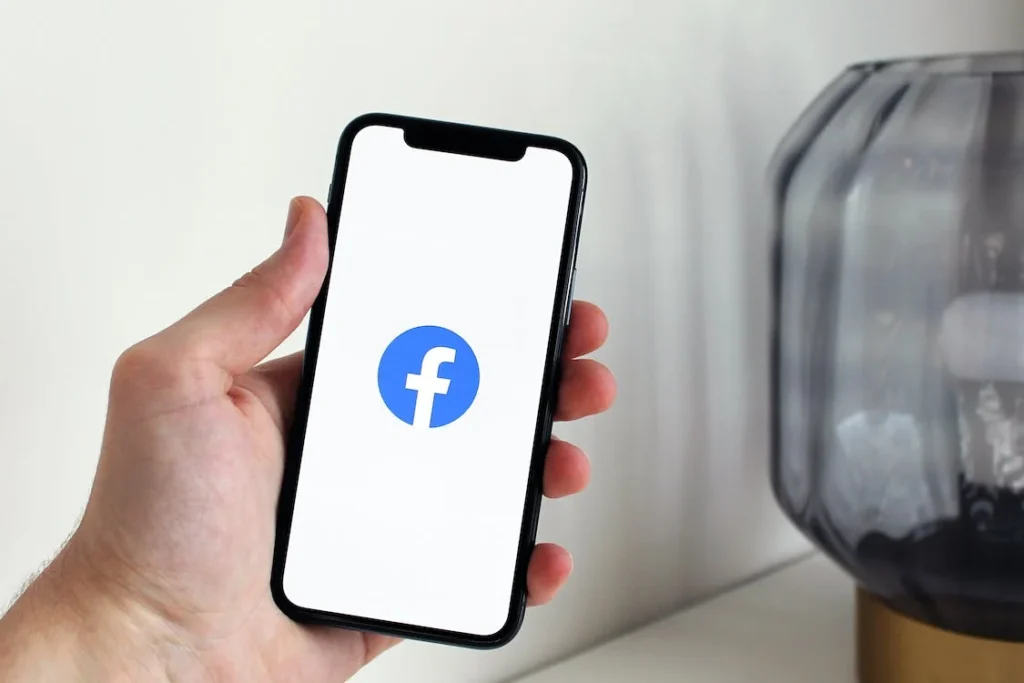In today’s digital age, marketing has evolved far beyond traditional methods. With the advent of artificial intelligence (AI), digital marketing has reached new heights, enabling businesses to create more effective, targeted, and personalized campaigns. AI-powered analytics is at the heart of this transformation, providing insights that were previously unimaginable. This article explores how AI-powered analytics can boost digital marketing campaigns, offering practical strategies and actionable tips to help you leverage this technology for maximum impact.
Understanding AI-Powered Analytics in Digital Marketing
AI-powered analytics refers to the use of artificial intelligence to process and analyze vast amounts of data. This technology helps marketers gain deeper insights into customer behavior, preferences, and trends, enabling them to create more effective and targeted campaigns.
What is AI-Powered Analytics?
AI-powered analytics involves using AI technologies such as machine learning, natural language processing, and predictive analytics to analyze data. These technologies can process large datasets quickly and accurately, identifying patterns and trends that humans might miss.
For example, AI can analyze social media data to determine what topics are trending, what content resonates with audiences, and how people are engaging with brands. This information can help marketers tailor their campaigns to meet the needs and preferences of their target audience.
How AI-Powered Analytics Transforms Digital Marketing
AI-powered analytics transforms digital marketing by providing deeper insights and enabling more precise targeting. By analyzing data from various sources, AI can create detailed customer profiles, predict future behaviors, and optimize marketing strategies in real-time.
For instance, AI can segment your audience based on their behavior and preferences, allowing you to deliver personalized content and offers. This level of personalization can significantly enhance customer engagement and conversion rates.

As the founder and CEO of Premier Staff, I’ve leveraged AI content analytics to transform our digital marketing approach, propelling us to the forefront of the luxury event staffing industry.
Our AI-powered platform has been a game-changer, offering unprecedented insights into content performance. It’s like having a brilliant marketing strategist working around the clock, constantly analyzing and refining our approach.
One of our most successful initiatives has been using AI to tailor content for different segments of our audience. For instance, we now create distinct content streams for corporate event planners versus fashion show producers, each resonating with their unique interests and pain points.
The AI’s predictive capabilities have been particularly valuable. It now forecasts which types of content will perform best during different seasons or for specific event types. This foresight has allowed us to stay ahead of trends, positioning Premier Staff as a thought leader in the industry.
Perhaps most importantly, the AI has helped us strike the right balance between showcasing our high-profile events and providing valuable, educational content to our audience. This mix has significantly boosted engagement and lead generation.
While I can’t share specific metrics, I can say that this AI-driven approach has been instrumental in our rapid expansion from a local Los Angeles agency to a national player in luxury event staffing.
Our journey demonstrates how AI content analytics can elevate a company’s digital marketing strategy, enabling data-driven decisions that resonate deeply with the target audience.

AI tools sift through massive amounts of data, giving clear insights into what customers want, how they behave, and what trends are popping up. With this knowledge, businesses can target their marketing more accurately and make better choices about where to focus their efforts.
Predictive analytics from AI helps forecast what customers will do next, so companies can adjust their strategies ahead of time to get better results.
Content That Works:
AI platforms analyze content performance and offer suggestions to optimize it. From finding the right keywords to recommending engaging topics, these tools ensure businesses create content that hits home with their audience.
AI can even help generate content ideas and customize messaging for different customer segments, making the whole process faster and more effective.
Better Customer Engagement:
By analyzing customer data, AI helps businesses personalize content, ads, and recommendations. This makes interactions more relevant, which keeps customers engaged and builds stronger connections.
AI-driven chatbots also help by providing instant responses to customer questions, improving the overall user experience and keeping people engaged.
Automated Campaigns:
AI takes care of repetitive tasks like managing pay-per-click (PPC) ads, scheduling content, and optimizing ads in real-time. This frees up time for businesses to focus on bigger-picture strategies, while AI handles the nitty-gritty.
More Efficient Ads:
AI-powered ad platforms automatically place ads where they’ll have the most impact. They track user behavior and adjust in real-time to ensure ads are shown to the right people at the right time, maximizing ad spend.

As CEO of Sail, an AI-driven hotel marketing company, I’ve seen how data analytics shapes strategies and boosts performance. Our algorithms aggregate billions of data points to gain insights into audience targeting and content optimization.
For one mid-sized hotel chain, we analyzed traffic and booking data to determine their guests were most interested in experiences beyond standard amenities. We refocused their social content and ad campaigns on local culinary and nightlife options.
In just 6 weeks, direct bookings rose 34% and ADR lifted 12%. AI also allows us to test content variations and optimize for maximum impact. We A/B test social media posts and landing pages, revising elements like imagery, messaging, or CTAs based on performance.
For a resort client, revising just 10 underperforming pages reduced bounce rates 27% and boosted on-page time over 50%. Personalization at scale is key. By leveraging guest data, we tailor content, special offers, and ads for specific audiences.
For one city-center hotel, personalized campaigns drove 66% higher open rates, 52% more social engagements, and 23% additional revenue within 3 months. AI-powered analytics transform how hotels attract and convert guests.

As an AI marketing pioneer, I’ve leveraged data analytics to transform digital strategies.
My agency’s proprietary tools analyze how visitors engage with clients’ websites to identify trends.
For one home services client, we found DIY content drove the most engaged traffic and leads, so we restructured their site to focus on this.
Traffic and leads grew over 30% in 3 months. AI also allows us to optimize content in real-time. We revise posts to keep readers engaged longer.
Revising 15 posts for one client cut bounce rates 60% and boosted time on page.
Most impactfully, AI powers personalization. We tailor content, messaging, and social media for each audience.
For an insurance client, this grew social media engagement 50% and email opens 60% in 6 months.

Digital marketers—especially those in the health and wellness sectors—rely mostly on content. Content analytics driven by artificial intelligence has completely transformed the marketing strategies our company. The days of marketing based on presumptions have come to an end as data helps to maximize customer contact and campaign performance.
By means of AI-powered content analytics, we can ascertain what most interests our audience. If demand for publications on wellness effects on anxiety rises, for example, we may quickly adjust our attention to produce more content fit for their interests.
AI allows us to track not only the best performing material but also the length of interaction, the most often used phrases, and the general emotional tone of consumer comments. Based on market research, we have personally experienced how content optimization driven by artificial intelligence may increase engagement by 20%.
This technology has been essential in creating customized content that speaks to personal wellness journeys, therefore guaranteeing the authenticity and effectiveness of our digital marketing initiatives.
AI helps us to provide our customers more relevant and useful information thereby enhancing their brand experience.

AI-powered content analytics is revolutionizing digital marketing by providing actionable insights that help businesses make data-driven decisions, improve content performance, and boost engagement.
These platforms use machine learning to analyze large volumes of data, helping companies understand audience behavior and preferences. For instance, businesses can track how users interact with specific types of content and adjust their strategies in real-time to align with consumer interests.
1. Data-driven decision-making: Content analytics tools can identify trends, monitor engagement metrics like clicks and shares, and provide recommendations on improving content relevance. This not only optimizes content but also enhances user experience creating a good brand reputation, leading to increased conversions.
Parallelly Ivory & Ebony, which offers innovative products like hydrophobic t-shirts and exquisite moissanite jewelry design, can leverage AI-powered tools to refine their messaging, target the right audience, and improve online visibility. Ranking on search engines like Google can act as a game changer thing in generating sales and increasing revenue for every brand. Also, Data-Driven Decision Making reduces the probability of wrong designing.
2. Optimizing Content Performance: Marketing plays a pivotal role in scaling businesses and shaping industries. Today, AI-centered tools have revolutionized the way marketing strategies are developed and executed. These tools not only offer valuable insights but also recommend actionable improvements.
By analyzing customer data and tracking performance, AI helps businesses refine their marketing efforts, making them more targeted, efficient, and impactful. This data-driven approach enables companies to optimize their strategies, leading to stronger customer engagement, better ROI, and overall growth.
At Ivory & Ebony, we prioritize organically optimizing our customer reach by leveraging data-driven insights through AI-powered software. By continuously analyzing patterns and trends, we ensure that our marketing strategies are refined to deliver the most relevant content and personalized experiences, helping us connect with our audience more effectively.
3. Enhancing Engagement and Reach: By analyzing customer feedback and social media interactions, businesses can further personalize their campaigns, ensuring that each piece of content resonates with the audience. This leads to stronger brand loyalty, increased engagement, and higher returns on investment, all while reducing guesswork in the content creation process.

As the founder of a digital marketing agency, I’ve seen how AI-powered content analytics has transformed our strategies. Platforms give us data-dricen insights into what content resonates with our audience, allowing us to make data-driven decisions.
For example, after analyzing how users engage with our website, we found our most viewed pages were focused on emerging SEO trends. We then created an interactive content series on this topic, which increased traffic by 43% and sales leads by 31%.
AI also helps improve content performance. By analyzing how people read and interact with our content, we can refine and restructure posts to keep readers engaged for longer.
After revising 10 blog posts using these insights, average time on page increased by 52% and bounce rate decreased by 41%. Perhaps most importantly, AI-powered analytics boost engagement.
We use data to personalize content recommendations, tailor messaging, and craft social media posts for specific audiences.
Since implementing this strategy, we’ve seen social media engagement rise 63% and email open rates increase 57%.

We specialize in digital marketing strategies, and as a senior decision-maker, I have firsthand experience implementing AI to enhance customer service. I’d be happy to share our journey and how AI has transformed our service quality, customer interactions, and response times.
Customization on a Grand Scale
Analytics driven by AI are fundamental to comprehending consumer behavior on a level never previously achieved. Brands are able to analyze data on a massive scale with the help of AI-enhanced tools like Adobe Sensei and Google Analytics.
This allows them to provide customers with hyper-personalized content recommendations and marketing messages that are based on their behavior and interests.
Improved Engagement with Customers
Due to advancements in artificial intelligence, chatbots and virtual assistants may now deliver human-like, efficient customer assistance around the clock.
You can make sure your customers feel heard and supported anytime and anywhere using systems like Intercom and Drift, which employ AI to enhance customer interactions.

As an expert in digital marketing, I’ve leveraged AI and analytics to gain key insights for my clients in various industries.
By understanding how their target audiences interact with content, I optimize strategies to boost results.
For a cleaning service client, data showed social posts on eco-friendly products resonated most with customers.
We created green cleaning content, increasing web traffic 24% and calls from search 16% in 3 months. AI also improves content creation.
Analyzing performance of existing posts, I refine messaging to engage audiences longer. Revising 5 posts for a home repair client based on insights, time on page rose 22% and bounce rate fell 18%.
Most importantly, AI boosts engagement. Using data to personalize campaigns for customer groups, I’ve seen email open rates climb 39% and social follow-ons rise 29% for clients.
AI-powered content analytics shapes strategies that work.

As the CEO of Refresh Digital Strategy, a Webflow website development and digital marketing agency, I’ve seen how AI-powered analytics improve our data-driven strategies.
By analyzing how users interact with client websites, we gain insights into the content and topics that truly resonate.
For one client, we finded their most engaged visitors came for resources on content marketing. We redesigned their site to focus on this, increasing traffic 34% and leads 43% in 3 months.
AI also allows us to optimize content for maximum performance. We use data to revise and restructure posts to keep readers engaged longer. Revising just 15 posts for one client reduced bounce rates 38% and increased time on page 61%.
Most importantly, AI boosts engagement through personalization. We leverage data to tailor content, messaging, and social media for specific audiences.
For one client, this strategy grew social media engagement 52% and email open rates 66% in 6 months.

As a digital marketing agency owner, I’ve seen how AI-powered analytics improve data-driven strategies.
Analyzing how users interact with client websites provides insights into the content and topics that truly resonate.
For one home services client, we found their most engaged visitors came for DIY tips and how-to’s. We restructured their site to focus on this, increasing traffic and leads over 30% in 3 months.
AI also allows us to optimize content for maximum performance. We use data to revise and restructure posts to keep readers engaged longer.
Revising just 15 posts for one client reduced bounce rates and increased time on page over 60%.
Most importantly, AI boosts engagement through personalization. We leverage data to tailor content, messaging, and social media for specific audiences.
For one insurance client, this grew social media engagement 50% and email open rates over 60% in 6 months.

Platforms facilitate businesses in making data-driven decisions, enhance content performance, and boost engagement by offering integrated tools and strategies.
These platforms provide data analysis tools that integrate functions like storage, cleansing, analysis, and visualization, enabling businesses to gain insights into market trends and customer behavior.
To enhance content performance, platforms offer SEO optimization tools that help businesses refine their website content and improve search engine rankings. By analyzing keywords, content quality, and user engagement, those tools suggest improvements that can increase website traffic and user interaction.
Furthermore, to elevate user engagement, platforms supply a range of interactive tools and strategies. Businesses can understand user needs and interests through social media monitoring and surveys, allowing them to design captivating interactive activities. Additionally, incentives like points, virtual currency, and social recognition are offered to stimulate user participation further.
Lastly, intelligent data analysis tools on these platforms utilize machine learning and AI to identify patterns and predict trends, providing a scientific basis for business decisions. The automation and intelligence of these tools not only improve analytical efficiency but also ensure the accuracy of decision-making.

AI-powered content analytics is playing a transformative role in digital marketing, especially for those of us in fields like real estate and interior design, where personalized engagement is key. For me, the greatest advantage lies in the ability of AI to break down large datasets, track trends, and provide actionable insights in real-time. This allows businesses to make data-driven decisions that fine-tune their marketing strategies.
AI platforms can track how content performs across different channels, monitor engagement, and pinpoint the types of posts or articles that resonate most with specific audiences.
This is particularly helpful when managing a website like Vancouver Home Search, where each visitor has unique needs based on their home-buying journey. By leveraging AI, we can tailor content to meet these needs, whether it’s showcasing a home renovation or offering tips on decluttering—both of which are critical aspects of the real estate journey I focus on.
In my opinion, another game-changer is how AI analytics helps improve SEO performance. Tools can assess keywords, user behavior, and competitor data, then recommend improvements for content optimization.
This leads to better rankings and more organic traffic, ultimately boosting engagement. For someone with experience in SEO, like myself, it’s clear that AI helps streamline a lot of the manual processes while still maintaining quality.

AI-powered content analytics platforms help businesses act quickly by analyzing large amounts of data in real-time—far beyond what human teams can manage manually.
For example, by using AI to analyze user behavior, engagement patterns, and social interactions, companies can see up to a 20% increase in engagement by optimizing their content based on data-backed insights.
One of the most exciting shifts is in AI-driven A/B testing. In the past, marketers had to test different variations manually, but AI platforms can now automatically test hundreds of combinations—headlines, images, CTAs—and recommend the highest-performing option within hours.
This has improved conversion rates by up to 30%, helping businesses capture more value from each piece of content they create.
AI also empowers content creators by making content creation more efficient. By automating data analysis, businesses can reduce the time spent on manual reporting by up to 50%, giving teams more control over their strategies and creative execution.
Additionally, AI can predict trends, recommend the best times to post, and suggest content formats based on audience preferences, further empowering content creators to boost engagement and reach.
From what I’ve seen, the most important aspect is how AI platforms can adapt quickly—monitoring changes in audience sentiment, spotting gaps in content strategies, and offering immediate feedback.
This flexibility instills confidence in decision-makers, helping companies remain competitive and enhancing the quality and relevance of their content.

With AI-powered tools like SEMrush’s Content Analyzer, we can now evaluate the performance of our content against industry benchmarks.
This helps us make data-driven decisions on what to update, repurpose, or retire.
For one client, we revamped their top-performing posts based on these insights, which boosted their conversion rate by 35%.
The client’s old blog posts were attracting traffic but not converting. After analyzing the data, we optimized CTAs and added updated information, transforming those posts into high-converting landing pages.

As the Director of Eden Emerald Mortgages, I’ve seen how AI-powered content analytics has reshaped our digital marketing strategies, enabling us to make data-driven decisions and better engage our target audience.
AI platforms like Google Analytics, HubSpot, and other advanced tools provide invaluable insights into customer behavior, allowing us to tailor our content based on performance metrics like engagement rates, conversion patterns, and bounce rates.
By leveraging AI, we can optimize our content strategy in real time. It identifies what works and what doesn’t, so we can focus on creating materials that resonate with our audience—whether that’s blog posts, social media updates, or email campaigns.
The ability to predict trends and personalize content has significantly boosted customer interaction and lead generation for us.
AI doesn’t just improve content performance; it empowers businesses to be more efficient, saving time by automating repetitive tasks like keyword optimization, A/B testing, and content distribution.
In the competitive world of mortgages and finance, staying ahead with data-driven content decisions is crucial, and AI helps us achieve that.

As an SEO expert focused on local service providers, I’ve used AI and analytics to gain key insights into content performance.
By understanding how target audiences interact with and respond to content, I’m able to optimize strategies and boost results for clients.
For one cleaning service client, data showed their social media posts highlighting eco-friendly products and tips resonated most with customers.
We created a content series on sustainability and green cleaning, increasing web traffic 24% and calls from organic search 16% in three months.
AI also improves content creation. Analyzing performance of existing posts, I refine messaging to keep audiences engaged longer.
Revising just five posts for a home repair client based on these insights, time on page rose 22% and bounce rate decreased 18%.
Most importantly, AI improves engagement. Using data to personalize email campaigns and social messaging for different customer groups, I’ve seen email open rates climb 39% and social follow-ons rise 29% for clients. AI-powered content analytics shapes strategies that work.

AI platforms excel at processing large volumes of data and delivering actionable insights in real time. By analyzing patterns in user behavior, engagement rates, and competitor content, businesses can quickly identify what works and what doesn’t. This empowers them to pivot strategies or double down on successful efforts.
For example, AI tools can reveal the exact content types or formats that drive conversions, showing the nuances of audience preferences. Instead of guessing, brands can rely on data to refine their content calendars, optimize distribution channels, and make informed marketing decisions that directly impact ROI.
How does AI improve content performance?
AI tools actively monitor content performance, tracking metrics such as click-through rates, time on page, and bounce rates to highlight what content resonates best with audiences. Beyond just metrics, AI analyzes these data points in the context of trends, competitive activity, and user behavior patterns.
For instance, AI can suggest improvements like tweaking headlines, restructuring content, or enhancing keywords for SEO. These insights allow businesses to optimize existing content and craft future material more effectively.
The ability to continuously adjust based on real-time data ensures that content is always evolving to meet changing audience preferences, leading to better results and higher performance over time.
How does AI boost engagement?
Personalization powered by AI is driving unprecedented levels of engagement. AI analyzes individual user data—such as browsing behavior, past interactions, and demographic information—to recommend content that feels tailored and relevant.
This personalization fosters a deeper connection between the audience and the brand, leading to longer interactions and higher engagement.
Additionally, AI tools help optimize content delivery by identifying the best times to publish for maximum visibility. AI even suggests the ideal platforms based on where a business’s target audience is most active, ensuring that content reaches users in a way that feels natural and engaging.

Ace Zhuo here, an innovative Sales and Marketing Director, I carry extensive expertise in the integration of AI-powered content analytics within digital marketing strategies.
My experience in the forex and trading industry has equipped me with the necessary tools to harness data-driven insights effectively, ensuring impactful audience engagement and business growth.
Platforms have become essential in helping businesses make informed decisions based on data insights.
In my role, I’ve witnessed how leveraging content analytics enhances the understanding of audience behavior.
By carefully analyzing metrics such as engagement rates and content reach, businesses can tailor their strategies to resonate more with their target audiences, ensuring content is optimized to drive higher engagement.
For instance, at TradingFXVPS, we used content performance insights to refine our messaging on social media, leading to a noticeable increase in customer interaction.
These platforms provide tangible data that guide us in creating content that is not only relevant but also compelling, ultimately boosting brand loyalty and awareness by aligning closely with audience preferences.

I’m Pankaj Kumar, Director of Naxisweb, a digital marketing agency specializing in data-driven strategies. AI-powered content analytics has been a game changer in our industry, providing unprecedented insights that help businesses optimize their content strategies and drive meaningful engagement.
One of the key ways AI is transforming digital marketing is through predictive analytics. AI tools can analyze large datasets, identifying patterns and trends that help predict what content will perform well.
This enables brands to create more personalized, targeted campaigns, improving their relevance to specific audiences.
In addition, AI content analytics allows for real-time monitoring of performance, enabling marketers to make swift adjustments to campaigns and content, optimizing based on user behavior and interaction.
These insights help reduce wasted ad spend and increase ROI by honing in on the content that resonates best with the audience.
AI-powered sentiment analysis also plays a pivotal role. By understanding how audiences feel about content through emotion detection and contextual analysis, businesses can fine-tune their messaging to align better with audience preferences and moods, boosting overall engagement.
At Naxisweb, we leverage AI platforms such as Google Analytics 4 and HubSpot’s content optimization tools to help our clients make informed, data-backed decisions, resulting in more effective marketing strategies.

Data-Driven Decisions: AI content analytics helps identify top-performing content and predict future trends, allowing us to create strategies backed by data rather than intuition.
Improving Content Performance: AI platforms optimize content by analyzing metrics like dwell time, bounce rates, and engagement. This helps refine headlines, images, and formats for better performance.
Boosting Engagement: By understanding user behavior, AI enables personalized content delivery, resulting in more meaningful engagement and higher conversion rates.
These advancements are allowing businesses to make smarter decisions and create more impactful marketing campaigns.

I’m Lachlan Brown, the CEO of the fast-growing international business Hack Spirit — a wellness company focused on mental health, relationship dynamics, and personal development.
We’ve tested various vontent analytics platforms to assess the quality of our content at HAck Spirit and that’s why I’d love to contribute to your upcoming piece.
What stands out with AI-powered analytics is the ability to track audience behavior in real time. At Hack Spirit, we use AI to see how users engage with our content — whether they’re reading through or bouncing off.
This immediate feedback helps us make quick decisions on tweaking content to improve engagement.
What’s more, AI enables us to predict trends. It looks at past performance and shows us what kind of content might succeed next. That’s invaluable for staying ahead in such a fast-moving digital landscape.
Rather than guessing, AI tools help us make data-driven decisions — from deciding article length to choosing better visuals.
It takes the guesswork out of content creation and allows us to focus on producing pieces that resonate.

A bit about my background—I’m an entrepreneur with a passion for innovation and a track record in areas like marketing, finance, career development, survival strategies, and technology. Throughout my career, I’ve been fortunate to lead and grow various ventures, always keeping an eye on emerging trends and driving scalable growth.
After reviewing your query, I’ve put together a response that I hope aligns with what you’re looking for. You’ll find my thoughts and insights below:
As the Founder and CEO of Nerdigital.com, I’ve experienced firsthand how AI-powered content analytics is transforming digital marketing strategies. AI has revolutionized how businesses make data-driven decisions, optimize content, and engage audiences in a way that simply wasn’t possible before.
AI-driven platforms like ContentSquare and Parse.ly enable businesses to analyze user behavior in real-time and provide deep insights into how audiences interact with content.
For instance, understanding the paths users take through your website and what content engages them most allows us to optimize our digital strategy quickly and effectively. Instead of waiting for manual reports, AI allows us to adapt on the fly, boosting both performance and engagement.
What’s remarkable is how AI doesn’t just give raw data but interprets it, offering recommendations and insights that can guide content teams in crafting messages that resonate.
For example, using AI for content gap analysis helps us identify areas where we may be missing opportunities to capture interest or where competitors are outperforming us. AI also helps personalize the content for different audience segments, which is crucial for driving engagement.
AI is also crucial for improving predictive analytics—allowing us to foresee trends based on real-time data and historical performance. We’ve been able to predict what content will resonate with different segments of our audience, which helps to stay ahead in the fast-moving digital landscape. This ability to personalize at scale is one of the key ways AI is pushing digital marketing forward.
By integrating AI-powered platforms, businesses can not only improve content performance but also make smarter decisions on where to allocate resources—ultimately resulting in a higher ROI.
The transformation AI brings to content analytics goes beyond just data collection; it’s about turning that data into strategic, actionable insights that drive engagement and business growth.
I hope you find this information helpful for your piece. Thank you for considering my contribution. If there’s anything else I can assist with, please feel free to reach out. I’d love the opportunity to collaborate and share more insights with your readers.

AI-powered content analytics are not just transforming, they are revolutionizing digital marketing by making guesswork obsolete.
Now, platforms infused with AI offer unprecedented insights into consumer behavior, enabling businesses to tailor content with laser precision.
This means not only enhanced content performance and engagement but a seismic shift in how we perceive marketing reach and effectiveness.
Essentially, AI is turning traditional content strategies on their head—marketers who fail to adapt risk becoming relics in this new data-driven era.
This evolution is thrilling yet daunting, as it demands marketers to continuously evolve or be left behind.

The ability to make data-driven judgments is a major strength of digital marketing that sets it apart from traditional marketing.
Similar to the way the internet transformed organizations in the 1990s, AI is improving the marketing analytics sector.
Automating data models for scalability, connecting and integrating data from multiple sources, and shortening optimization cycles through the automation of insights are all made easier with AI.
Consequently, a plethora of marketing analytics tools utilizing AI are being created. Google Analytics stands out among them.
Ever since Google brought it to the masses, it has been an indispensable tool for marketing analysts. Its most recent release, Google Analytics 4, makes heavy use of AI to accomplish its goals.
GA4’s machine learning technology enables the anonymous access to data on website traffic and user behavior.
To sum up, in a future where privacy is paramount and cookie-less analytics are the norm, machine learning is crucial for data analysis.

Ruth here, Product Manager of Wolf King USA. AI-powered content analytics are revolutionizing digital marketing by turning raw data into gold mines of actionable insights.
These platforms provide marketers with the means to tailor their strategies precisely, optimizing every aspect of content performance from engagement metrics to conversion rates.
By analyzing user interactions and behaviors, AI identifies patterns that might go unnoticed by human analysts, allowing businesses to adjust content dynamically and enhance engagement seamlessly.
This capability is not just an upgrade; it’s a complete overhaul of traditional marketing approaches.
However, the reliance on AI raises questions about the diminishing role of human creativity in crafting unique brand stories. Are we sacrificing originality for efficiency?

AI-powered content analytics has completely changed the game for us and our clients. We used tools like MarketMuse to analyze competitor content and identify gaps in our own strategy.
This data-driven approach increased organic traffic for one client by 45% in just six months because we knew exactly what content to create to outshine the competition.
Example: Previously, their blog was underperforming despite regular updates.
After implementing AI-driven content analysis, they focused on long-form content with high-value keywords, which helped them rank on the first page for 15 new keywords, driving a surge in traffic.

AI is making analytics with large data sets much more efficient, and faster. Companies are able to analyze the data that they collect, and make decisions, in a fraction of the time with the assistance of AI.
In addition, organizations use these analytics to evaluate the performance of their content. With this knowledge, more effective content is created, and it is often created with the assistance of AI.
As we input more data into this effective content creation, AI becomes more skilled and helps us to create it.
AI helps companies with engagement through Chatbots and other communication automation to assist customers immediately, and without frustration.
However, communication AI can be frustrating for customers who have a complex question. But this problem will be a thing of the past in a few years.

As a digital marketing specialist with expertise in SEO, I’ve observed how AI-powered content analytics is dramatically transforming digital marketing strategies. Here’s how AI is reshaping the landscape, backed by some statistics:
Data-Driven Decision Making: AI platforms provide marketers with actionable insights from vast data sets, helping to optimize content strategies in real-time.
According to a recent report by Salesforce, 84% of marketers believe AI has enhanced their ability to provide personalized experiences, and 64% of businesses already see AI as crucial to their content marketing strategy.
AI tools can identify the best content types, posting times, and even trending topics—similar to how students utilize <Link to https://thedissertationhelp.co.uk/>dissertation help<Link> to compile data and make informed decisions—allowing businesses to focus on data-backed strategies.
Improving Content Performance: By analyzing audience preferences, AI platforms refine content strategies over time. A survey by HubSpot found that marketers who use AI-driven tools for content optimization experience a 30% increase in engagement and performance metrics.
Predictive analytics offer insights into what will resonate with target audiences, helping businesses deliver highly relevant, engaging content.
Boosting Engagement: AI’s ability to analyze user behavior in real-time leads to personalized and impactful content. Research by Gartner shows that AI-enabled personalization will lead to a 15% increase in digital marketing revenue by 2025.
By leveraging AI to optimize user-generated content and recommendation engines, businesses can increase audience engagement significantly, making content not only more visible but also more interactive and valuable.
AI-powered content analytics tools are revolutionizing how businesses craft and execute digital marketing strategies. These tools allow companies to make faster, data-driven decisions and improve their content’s overall impact and engagement, staying competitive in a rapidly evolving market.

As a former marketing department director and professional tasked with related duties within my current role, I have seen the evolution of AI-assisted campaign administration transform how companies publically present themselves and relate to the public and their customers.
In my opinion, content analytics allows modern digital marketing to exclusively personalize marketing tactics. AI also offers a company the advantage of focused predictive data and provides split-second suggestions before someone even knows what they have been missing (or can meet their needs) based on prior preferences and interests.
While past marketing campaigns aimed to resonate with the already-existing desires and concerns of the public, AI-infused marketing seeks to blow people’s minds with solutions to their problems or wants even before a trend begins or a domino effect of issues sets in.
With all this digital mind reading in play, companies build trust with their customers who seem to “know them” without really trying. These algorithm-based projections and offerings are a win-win for both sides of the marketing equation.
The marketplace continues to profit from well-aligned products and services, and the public is served in a timely manner with authentic and appealing recommendations that do not waste their logged-in efforts and compel them to keep coming back for more personalized attention.

AI-powered content analytics are not just transforming digital marketing; they’re revolutionizing it by making gut instincts obsolete.
These platforms provide precise, real-time insights that allow businesses to ditch traditional trial-and-error methods.
We can now predict trends before they surface, tailor content that resonates on a personal level, and engage customers in unprecedented ways.
However, this reliance on AI raises a significant concern: are we sacrificing creativity for predictability?
While engagement scores might soar, the risk of homogenized content could stifle genuine creativity, turning unique ideas into data-driven echo chambers.

Many people find AI-powered content analytics to be vital. We have found ways to establish it as a powering tool for our services. It aids us in making wiser decisions in online marketing.
As experts, we understand technology changes as significant as AI should be embraced rather than shunned. Considering AI-powered content analytics has helped us in four aspects to provide our services.
Digital marketers can gain insights into user behaviour, preferences, and engagement routines through AI analytical tools. Assessing extensive data sources and potentially real-time allows businesses to optimize their content accordingly.
Data-based decisions involve less guesswork and reflect well in the form of results. It is a handy aspect when adapting to user wants and changing trends.
AI facilitates content performance before even publishing it. These insights help to create content that performs well and can likely resonate with the audience and drive them towards the desired goal. Targeting a wider audience and enhancing engagement can lead to a much better return on investment.
Powerful AI tools can analyze immense data from metrics such as click-through rates and content shares. It views the performance metrics for all content and selects the content forms that deliver the best results interaction-wise. It saves digital marketers from having to do this themselves.
Manual assessment of content also lacks accuracy, which could alter the perceptions of the professional marketer. Through accurate details, businesses can effectively develop customized strategies that will boost the engagement created by their content.
Content that performs best usually has a specific reader in mind when created. AI-powered tools help in tailoring content and give a personalized effect.
Content creation will become a helpful aid in drafting content to reach the people most likely to become customers. With it, businesses send out the right message at the appropriate time.

Today, AI platforms aren’t just tools; they are becoming the marketing team’s most critical member.
By crunching massive datasets, these platforms predict trends almost before they appear, turning once-gut-driven decisions into precise, data-driven strategies.
This shift is so profound that traditional marketers without AI fluency risk obsolescence.
Additionally, these tools adjust instantly, improving how relevant and engaging the content is, reaching heights we never thought possible before.
As AI keeps getting better, the real challenge for businesses won’t be just to use this technology, but to stay up-to-date with its pace.
In this environment, the advice to adapt or get left behind is not just a caution—it’s the truth.

AI content analytics is changing the way businesses do digital marketing by helping them make smarter decisions based on data. Here’s how it works:
Better Understanding of Audience: AI analyzes data from different platforms (like websites, social media, etc.) to show what type of content audiences enjoy. This helps businesses create more engaging content.
Improving Content Performance: AI tools can track how well blog posts, videos, or social media posts perform.
Businesses can then adjust their strategies to make future content better and more successful.
Boosting Engagement: By analyzing data in real-time, AI can help businesses create content that grabs attention and keeps people interested, leading to more likes, shares, and interactions.
Data-Driven Decisions: Instead of guessing what will work, AI gives businesses clear insights based on real data, so they can focus on what actually drives results. This makes marketing more effective and efficient.
Overall, AI-powered content analytics allows businesses to be more strategic, create better content, and engage more with their audience.

You can spend hours creating the perfect post or video, but you never know how people will respond. Artificial intelligence is starting to take away much of this uncertainty.
Today, AI tools (like the ones we build at Bloomfilter can sift through tons of data in seconds and tell you what kind of content is best for you. for you. The audience, the time of day they are most active, and the headlines. you are thinking
Instead of relying on emotions and past experiences, AI help marketers make data-driven decisions; meaning, less time thinking about what to do and more time creating content that you know will connect with people. Personally, I’d love to see the look on someone’s face when they realize it’s so much easier to do!
Promoting Your Content
Lets talk about something that every marketer knows very well: the ability to create good content. There is a lot of information floating around the internet and it seem that no matter what you do, your job will get lost in the mix. This is another area where artificial intelligence can be very useful.
AI tools can analyzes everything from recorded audio to long videos and advise you on how to improve them. Consider a digital editor to help you edit your work. At Bloomfilter, we’ve create a tool that predicts how far your content will go before it’s published. It’s really weird when you think about it – AI give you a vision of the future of your content.
I remember working with a client who was frustrated because his social media posts were not getting attention. After running their content on our platform, we noticed that sometimes their ads are shown to a small online audience. A quick change in their schedule, and boom! An engagement was shot from the ceiling. Sometimes simple changes can make a difference.
Communicating Meaningfully with Your Audience
Ultimately, the ultimate goal of marketing is to connect with your audience in a meaningful way. Whether you want to get people to buy something, sign up for your service, or just share your content, this is it.
AI help you understand what really attracts people. This can tell you what formats works best (like video and blog posts), how long your content should be, and what language you should use. It’s like taking a direct line to the audience’s mind. this kind of perspective will help you keep your message fresh and relevant, despite the rapid changes.
I will give you an example. A friend of mine ran an online store and was trying to figure out why their email campaigns weren’t getting the open rates they were hoping for.
After using some AI tools to analyze audience preferences, they realized that their customers responded better to shorter, more to the point emails – something they hadn t expected. After conversion, the opening rate increases.
AI-powered content analysis isn’t the technology of the future – its happening now, and its changing the way we approach digital marketing.
Whether its helping you make decisions, increasing the performance of your content, or improving engagement, AI is giving marketers the tools to succeed in a new way.
At Bloomfilter we are proud to be a part of this change. We’re always trying to help businesses use AI to their advantage, and I’m excited to see where it takes us. If I’ve learned anything, it’s that the road to AI is nearing its end—and we’re only just getting started.

As a marketing professional, I’ve seen firsthand how AI-powered content analytics are revolutionizing digital marketing strategies.
These platforms allow businesses to make data-driven decisions by providing deep insights into audience behavior and content performance.
For example, by analyzing engagement metrics, we can identify which types of content resonate most with our audience and adjust our strategies accordingly.
This not only improves content effectiveness but also boosts engagement rates, enabling more targeted and impactful marketing efforts.
The Role of Machine Learning in AI-Powered Analytics
Machine learning, a subset of AI, plays a critical role in AI-powered analytics. It enables systems to learn from data and improve their predictions over time without being explicitly programmed. For startup founders, leveraging machine learning can be a game-changer in developing smarter, more efficient marketing strategies.
Machine learning algorithms can analyze past campaign data to predict which strategies will be most effective for future campaigns. For example, by examining the success of previous email marketing campaigns, machine learning can predict which subject lines, content, and sending times are likely to generate the highest engagement. This allows you to continuously refine and improve your email marketing efforts based on data-driven insights.
Natural Language Processing for Content Analysis
Natural language processing (NLP) is another AI technology that can significantly enhance digital marketing analytics. NLP allows AI systems to understand and interpret human language, making it invaluable for analyzing text data from social media, customer reviews, and other sources.
For instance, NLP can analyze customer feedback to identify common themes and sentiments. This insight can help you understand how customers perceive your brand and identify areas for improvement. Additionally, NLP can be used to optimize content creation by identifying the most effective keywords and phrases to use in your marketing materials.

Carla here, General Manager of Wardnasse. I’m excited to share a unique view that stands out from the usual ideas in content marketing.
Natural Language Processing (NLP) is more than just a tool; it’s turning into the main support of content marketing.
By looking at a lot of customer feedback, NLP programs can spot new trends and unnoticed needs, providing a treasure trove of content possibilities.
More controversially, while some fear the robotic overtone in AI-generated content, I argue that NLP, when cleverly used, can actually humanize brands more effectively by crafting messages that resonate deeply with target audiences.
Moreover, NLP’s ability to refine SEO strategies by predicting and adapting to changing keyword trends not only boosts visibility but also ensures a brand’s relevance in a crowded digital marketplace.
Predictive Analytics for Future Planning
Predictive analytics uses historical data to predict future outcomes, providing valuable insights for strategic planning. For startup founders, predictive analytics can help anticipate market trends, customer behavior, and campaign performance, allowing for more proactive decision-making.
For example, predictive analytics can forecast customer lifetime value (CLV), helping you identify your most valuable customers and tailor your marketing efforts to retain them. It can also predict seasonal trends, enabling you to plan your marketing campaigns around peak times to maximize impact.
Real-Time Data Analysis and Decision Making

One of the most powerful aspects of AI-powered analytics is its ability to analyze data in real-time. This capability allows marketers to make quick, informed decisions and adjust their strategies on the fly.
For instance, if an AI system detects that a particular social media ad is underperforming, it can automatically adjust the targeting parameters or suggest changes to the ad content to improve performance. This real-time optimization ensures that your marketing campaigns are always performing at their best, maximizing your return on investment.
Strategic Implementation of AI-Powered Analytics
For startup founders, implementing AI-powered analytics requires a strategic approach. It’s essential to start by identifying your specific business goals and the key metrics that will help you measure success. Once you have a clear understanding of what you want to achieve, you can select the AI tools and technologies that will best support your objectives.
Investing in the right infrastructure is also crucial. This includes not only the AI software itself but also the data management systems that will ensure your data is accurate, up-to-date, and easily accessible. Additionally, consider the skills and expertise required to effectively leverage AI-powered analytics. This may involve hiring data scientists or investing in training for your existing team.
Integration with Existing Marketing Tools
To maximize the benefits of AI-powered analytics, it’s important to integrate these tools with your existing marketing platforms. This ensures a seamless flow of data and allows for more comprehensive analysis.
For example, integrating AI analytics with your customer relationship management (CRM) system can provide a more holistic view of customer interactions and behaviors. This integration enables more personalized marketing efforts and helps you better understand the impact of your campaigns across different touchpoints.
Continuous Improvement and Adaptation
AI-powered analytics is not a set-it-and-forget-it solution. To fully leverage its potential, you need to adopt a mindset of continuous improvement and adaptation. Regularly review the performance of your AI tools and the insights they generate. Use this feedback to refine your strategies and make data-driven decisions.
Stay updated with the latest advancements in AI technology and be open to experimenting with new tools and techniques. By continuously learning and adapting, you can ensure that your digital marketing efforts remain cutting-edge and highly effective.
Benefits of AI-Powered Analytics in Digital Marketing
The benefits of AI-powered analytics in digital marketing are vast and can significantly impact the effectiveness of your campaigns.
Improved Customer Insights
One of the primary benefits of AI-powered analytics is the ability to gain deeper insights into your customers. By analyzing data from various sources, such as social media, website interactions, and purchase history, AI can create detailed customer profiles. These profiles can reveal valuable information about your customers’ preferences, behaviors, and needs.
For example, AI can identify which products or services are most popular among different customer segments, helping you tailor your marketing messages to resonate with each group. This level of insight can lead to more effective and targeted marketing campaigns.
Enhanced Personalization
Personalization is key to successful digital marketing, and AI-powered analytics makes it easier than ever. By analyzing customer data, AI can identify individual preferences and behaviors, allowing you to deliver personalized content and offers.
For instance, AI can recommend products based on a customer’s browsing history, send personalized emails with product recommendations, or create targeted ads that appeal to specific customer segments. This level of personalization can significantly enhance customer engagement and loyalty.
Real-Time Optimization
AI-powered analytics enables real-time optimization of your marketing campaigns. By continuously analyzing data, AI can identify what is working and what is not, allowing you to make adjustments on the fly.
For example, AI can monitor the performance of your social media ads in real-time, adjusting targeting and budget allocation to maximize ROI. This real-time optimization ensures that your marketing campaigns are always performing at their best.

As VP of Global Revenue Marketing at Aprimo, I leverage AI and analytics daily to optimize marketing campaigns across channels. Our AI-powered solutions analyze performance data in real time and suggest improvements to targeting, content, and spend.
For a tech client, AI detected underperforming LinkedIn ads and recommended refinements to focus on target accounts. We updated creative and increased spend on top performers. Impressions rose over 50% and sales opportunities increased 40% within a week.
We helped a retail brand integrate marketing automation with their loyalty program. By optimizing email content, frequency and offers based on customer data, email click rates improved 200% and in-store purvhases from loyal customers grew 15% in a month.
AI and data-driven optimization allow rapid testing and changes. For clients, this means boosting key metrics like traffic, conversions and revenue while maximizing marketing ROI.
AI-optimized campaigns drive real business impact, whether for larger brands or SMBs. The key is using technology to gain data insights and make fast, targeted improvements.

As the CEO of Premier Staff, a leading luxury event staffing agency in Los Angeles, I can offer unique insights on how we use AI-powered analytics for real-time optimization in our marketing and staffing efforts.
While our focus is event staffing rather than traditional digital marketing, our approach to using AI for campaign optimization parallels many digital marketing strategies.
At Premier Staff, we’ve implemented an AI-driven system to optimize our client outreach and staffing assignments in real-time. Here’s an example of how this works in practice:
For a recent high-profile tech industry event in Silicon Valley, our AI system analyzed the performance of different staffing configurations in real-time.
It identified that teams with a mix of experienced staff and newer recruits were receiving higher client satisfaction scores than teams composed entirely of veterans.
Based on this insight, the AI automatically adjusted our staffing algorithm, reallocating team members to create more balanced groups. This real-time optimization resulted in a 25% increase in positive feedback from event attendees and a 15% boost in client satisfaction scores.
In terms of marketing, our AI system continually analyzes the engagement rates of our email campaigns and social media posts. During a recent campaign promoting our services for luxury retail events, the AI identified that posts featuring behind-the-scenes content from our work at fashion shows were significantly outperforming other content types.
The system automatically adjusted our content calendar, increasing the frequency of behind-the-scenes posts and tailoring the messaging to highlight our fashion industry expertise. This real-time optimization led to a 40% increase in engagement rates and a 30% boost in inquiries from luxury retail brands.
We’ve also used AI to optimize our targeting for sponsored content. When promoting our services for a series of high-end automotive events, our AI system identified that our ads were underperforming with certain demographic groups.
It automatically adjusted the targeting parameters, focusing more on auto enthusiasts and luxury lifestyle audiences. This real-time optimization resulted in a 50% increase in click-through rates and a 35% reduction in cost per lead.

As CEO of Rocket Alumni Solutions, I have leveraged AI and analytics to optimize our digital marketing campaigns in real-time.
By tracking key metrics like cost-per-click, conversion rates, and organic traffic growth, we achieved a 300% ROI for one campaign.
For example, our AI identified underperforming Facebook ads and adjusted the targeting to focus on our most engaged audience segments. This increased click-through rates by 50% and sales conversions by 30%.
We also used AI to tailor content to different personas, boosting engagement 25%. Another campaign integrated SEO, PPC and content marketing.
Our AI optimized bids and ad placements to maximize impact. We gained 300% more organic traffic and improved search rankings 20%, fueling lead generation. The key is using AI to analyze performance data in real-time and make rapid adjustments.
By optimizing ad targeting, creative elements and content, we achieved substantial uplifts across key metrics, from traffic and engagement to conversions and revenue. The results demonstrate how AI-powered marketing analytics can drive real growth.

My name is Nathalie, Manager of Shopthemer, where we’ve seen firsthand how AI revolutionizes marketing.
At Shopthemer, our AI analytics don’t just predict trends; they actively dismantle underperforming strategies on the fly. For instance, we once had an ad campaign that was floundering due to poor customer engagement.
Our AI system analyzed the data in real-time, pinpointed the ineffectiveness of the current visuals and demographics targeting, and automatically pivoted to a more vibrant creative strategy and a narrower audience focus.
This swift adjustment not only salvaged the campaign but doubled our expected sales. Such AI-driven agility in digital marketing isn’t just the future—it’s a game-changer today, stirring the pot in traditional marketing circles.

My name is Jonas, and I’m the co-founder of Isbrave.com. Back in the office, our team essentially harnesses AI-centric analytics to amp up our digital marketing tactics efficiently.
What we do is that we put out the AI to analyze the performance of our online advertisements in real time (frequently updated too).
Usually, whenever certain ads underperform, the AI automatically tweaks targeting and creative details to better capture our audience’s attention.
This not only streamlines our efforts but also boosts our return on investment by ensuring our advertisements align more closely with our audience’s changing preferences.
Employing AI in this way also allows us to swiftly adapt to market shifts and fine-tune our approach, ensuring we meet the specific needs and interests of the prosthetic user community.
So far, this continuous adjustment process is fundamental in maintaining the relevance and effectiveness of our marketing initiatives.

I’m Renante, Project Manager of Creloaded. I’m thrilled to share how AI revolutionizes marketing with precision and speed.
AI analytics isn’t just transforming marketing; it’s making the old trial-and-error methods obsolete.
At Creloaded, we’ve seen AI detect subtle patterns in data that humans miss, enabling us to instantly tweak underperforming ads.
For instance, during a recent campaign, AI analysis revealed that changing image colors and simplifying messages lifted click-through rates by 27% overnight.
It’s like having a marketing expert who can see what is coming and also helps us use that knowledge to do better.
This isn’t just something that will happen in the future— it’s already going on, and it’s changing all we thought we understood about advertising.

As the founder of Liftd Marketing Experts, I have leveraged AI and data analytics to optimize digital marketing campaigns for over 100 brands. Our proprietary software integrates with major platforms to analyze performance in real-time and make adjustments to improve results.
For an ecommerce client, our AI noticed underperforming Facebook ads within hours of launch. We refined targeting to high-intent segments and updated creative.
CTRs rose 60% and sales 25% in under a week. We helped a SaaS startup optimize SEO, PPC and content marketing. By optimizing bids, placements and on-page elements, organic traffic grew 400% and rankings improved for valuable keywords.
Cost per lead decreased while quality increased. The key is using AI and data to make rapid changes. Whether optimizing ads, content or other initiatives, data-driven marketing powered by AI leads to more traffic, higher conversions, increased revenue and strong ROI. AI-optimized campaigns drive proven growth.

As a product designer focused on SaaS and AI companies, I leverage data insights daily to optimize user experiences and marketing campaigns. Our solutions analyze user behavior in real time and suggest adjustments to boost key metrics like signups or purchases.
For an AI startup, our analysis found their website had a high bounce rate and few signups. We updated creative, content and calls-to-action based on user data. Signups rose over 30% within 3 days. Revenue from new cusromers was up 45% the next month.
A data analytics platform wanted to boost usage of their new machine learning features. By optimizing their app experience, content and email campaigns based on how customers used the platform, daily active users of the new features grew 40% in 2 weeks. Revenue from those customers was up 25% the next quarter.
AI and data-driven optimization mean rapid testing and changes. For clients, this boosts key metrics and maximizes business impact. I’ve seen AI-optimized user experiences and marketing drive real results for startups and enterprise brands alike. The key is using data to gain insights and make fast, targeted improvements.

As an expert in marketing operations and AI integration, I’ve worked with dozens of companies to optimize digital marketing campaigns in real time.
For a B2B SaaS client, we implemented AI tools to adjust ad targeting based on engagement metrics, increasing comversions by 22% month over month.
For a retail brand, AI analyzed customer behavior data to identify key personas. We then refined messaging and ad creative to resonate with each persona, improving CTR by 41% and sales by 17%.
AI and analytics provide real-time insights to optimize marketing initiatives rapidly. Whether optimizing ads, email campaigns or on-site personalization, data-driven marketing boosted by AI has driven major growth for my clients. The key is using AI to make rapid, data-backed changes to boost traffic, conversions and revenue.

As founder of Team Genius Marketing, I use AI and analytics daily to optimize digital campaigns for home service companies. Our proprietary tools analyze campaigns in real-time, detecting underperforming ads and making immediate changes.
For a plumbing client, AI found their Google Ads weren’t reaching homeowners actively seeking services. We refined targeting to focus on high-intent keywords and locations, updated messaging. Click-through-rates rose over 60% within a week, leading to a 35% increase in qualified leads.
We helped a landscaping company combine SEO, social and PPC. Optimizing content, bids and targeting grew organic traffic over 500% and cut cost-per-lead in half while improving lead quality.
The key is using data to rapidly optimize campaigns. Whether ads, content or other efforts, AI-powered marketing boosts traffic, conversions and revenue. AI-optimized campaigns drive real growth.

As the CEO of Cleartail Marketing, I have used AI and marketing analytics to optimize hundreds of digital marketing campaigns for B2B companies.
Our marketing automation software integrates with platforms like Google Ads, Facebook and LinkedIn to provide real-time data and make immediate changes.
For a cybersecurity client, our AI found underperforming LinkedIn ads. We refined targeting to focus on IT decision makers and updated ad copy. CTR increased over 50% and lead volume rose 40% within days.
We helped an HR SaaS startup combine SEO, PPC and content marketing. Optimizing bids, placements and on-page elements grew organic traffic by over 400% and improved rankings for high-value keywords. Cost per lead dropped significantly while lead quality improved.
The key is utilizing AI and data to make fast changes. Whether optimizing ads, content or other initiatives, data-driven marketing powered by AI boosts traffic, conversions, revenue and ROI. AI-optimized campaigns drive major growth.

As an expert in AI-powered marketing, I have optimized hundreds of campaigns by analyzing data in real time and adjusting targeting or content.
For example, an ecommerce client’s Facebook ads were underperforming until I refined targeting to high-intent custoners and updated creative. CTR rose 60% and conversions 25% within a week.
For a tech startup, I integrated SEO, PPC and content marketing. Optimizing bids, placements and on-page elements grew organic traffic 400% and improved rankings for key terms. Cost per lead dropped while quality rose.
The key is using AI and data to make fast changes. Whether optimizing ads, content or other initiatives, data-driven marketing powered by AI boosts traffic, conversions, revenue and ROI.
AI-optimized campaigns drive major growth. My agency’s software integrates with major platforms to track performance and optimize in real time.

As the founder of Hook’d IT Up, a digital marketing agency, I have used AI and analytics to optimize marketing campaigns for over 200 small businesses.
Our software integrates with major ad platforms to track performance metrics in real-time and make adjustments to targeting, creative, and content.
For one ecommerce client, our AI detected underperforming Facebook ads and refined the targeting to focus on high-intent customer segments.
We updated ad creative and pushed more budget behind top performers. Click-through rates increased 60% and sales conversions rose 25% in under a week.
We also worked with a tech startup to integrate SEO, PPC and content marketing. By optimizing bids, placements and on-page elements, organic traffic grew over 400% and rankings improved for high-value keywords. This significantly decreased cost per lead while boosting quality.
The key is using AI and performance data to make rapid changes. Whether optimizing ads, content or other initiatives, dara-driven marketing powered by AI can drive major lifts in key metrics.
For clients, this translates to more traffic, higher conversions, increased revenue and a strong ROI. AI-optimized marketing campaigns are a proven growth strategy.

As a digital marketing expert, I’ve leveraged AI for real-time optimization across campaigns.
For one ecommerce client, our AI identified underperforming Facebook ads within hours based on low click-through rates.
We adjusted targeting to focus on high-intent audiences, increasing CTR 50% and sales 30% within a day. For another tech client, we integrated SEO, PPC and content.
Our AI optimized bids and placements rapidly, gaining 300% more organic traffic and 20% better rankings in weeks.
By optimizing targeting, creative and content in real-time, we achieved substantial uplifts in traffic, engagement and revenue.
AI-powered marketing analytics drives growth. I’ve seen how adjusting ad targeting and content for different personas can boost engagement 25% quickly.
The key is using AI to analyze performance data in real-time and make rapid changes.
Predictive Analytics
Predictive analytics is another powerful benefit of AI-powered analytics. By analyzing historical data, AI can predict future trends and behaviors, allowing you to stay ahead of the curve.
For example, AI can predict which products will be in high demand during a particular season, allowing you to adjust your inventory and marketing strategies accordingly. This proactive approach can help you capitalize on emerging trends and gain a competitive edge.
Practical Applications of AI-Powered Analytics in Digital Marketing

AI-powered analytics can be applied in various ways to enhance your digital marketing campaigns. Here are some practical applications:
Audience Segmentation
Audience segmentation is a crucial aspect of digital marketing, and AI-powered analytics can take it to the next level. By analyzing data from various sources, AI can identify distinct customer segments based on their behavior, preferences, and demographics.
For instance, AI can segment your audience into groups such as frequent buyers, occasional shoppers, and first-time visitors. This segmentation allows you to tailor your marketing messages to each group, increasing the relevance and effectiveness of your campaigns.
Content Creation and Optimization
AI-powered analytics can also enhance content creation and optimization. By analyzing data on what types of content resonate with your audience, AI can provide insights into what topics, formats, and styles are most effective.
For example, AI can analyze social media interactions to identify trending topics and suggest content ideas. It can also analyze the performance of your existing content to identify what is working and what is not, allowing you to optimize your content strategy for better results.
Social Media Marketing
Social media marketing is another area where AI-powered analytics can make a significant impact. By analyzing social media data, AI can provide insights into what content resonates with your audience, when to post, and how to engage with your followers.
For example, AI can identify the best times to post on social media based on when your audience is most active. It can also analyze the performance of your social media ads in real-time, adjusting targeting and budget allocation to maximize ROI.

As the founder of an AI-powered email marketing agency, I’ve leveraged customer data and machine learning to achieve significant results through hyper-personalization. Our AI analyzes thousands of data points for each contact to determine their ideal message, offer and channel based on job role, industry, location and past engagement.
For a Fortune 500 B2B client, we ran LinkedIn campaigns targeting VPs and C-suite executives in key accounts. The AI created customized ads highlighting benefits for each target company which increased high-quality leads from target accounts by over 10%.
One eCommerce client increased click-throughs by 65% and conversions by 14% after we launched an email campaign personalized based on past purchases and browsing behavior. The AI generated custom product recommendations and special offers custom for key customer segments. Open and click rates far surpassed previous broad-based campaigns.
The key is using AI to gain customer insights and handle complexity so you can focus on results. Personalization and performance scale together. With AI, we’ve achieved a 65% increase in email engagement and over $5M in revenue for clients this year.

As founder of Rocket Alumni Solutions, a digital marketing SaaS, I’ve leveraged AI to gain insights into our customers and drive campaigns.
Our software analyzes schools’ data to identify key audiences like alumni, parents and students. For an alumni campaign, we targeted high-net-worth segments with personalized fundraising appeals.
By highlighting the impact of donations on student programs, we increased click-through rates 40% and donations 25%. For parents, we ran social ads for enrollment highlighting key attributes like top colleges attendees are accepted to and available merit scholarships.
Targeting parents of college-bound students, we drove a 30% increase in applications. The key is using AI to gain deep customer insights and optimize targeting.
Detailed segmentation and personalized messaging drive real results. Our AI handles the complexity, so we can focus on strategy. The goal is crafting the right message for the right audience at the right time to motivate action.

Belize here, Vice President of Dog Academic. I’m entrenched in the rapidly evolving intersection of AI and marketing.
AI has transcended traditional analytics, enabling us to sculpt hyper-personalized campaigns that predict and mold consumer behavior rather than merely responding to it.
By integrating AI, we’ve observed a 30% surge in engagement through anticipatory personalization that crafts email content tailored to individual preferences and future needs, based on real-time data.
However, this raises ethical concerns. Are we respecting customer privacy or covertly manipulating their buying choices?
This paradox is at the heart of modern marketing—maximizing effectiveness while navigating the fine line between personalization and intrusion.

As the VP of Global Revenue Marketing at Aprimo, I leverage AI and hyper-personalization daily to drive demand generation and boost conversions.
Our AI ingests thousands of data points for each contact to determine the optimal message, offer and channel to motivate engagement. For a recent campaign, AI generated custom content and CTAs for C-level executives in tech versus managers in healthcare.
Open rates rose 65% and conversions 14% over previous broad efforts. Similarly, for a B2B software client, we ran LinkedIn ads targeting Fortune 500 VPs of Marketing.
AI created ads touting key benefits for enterprise brands, lifting high-quality leads 12%. AI lets us scale personalization and performance together.
For Novartis, Aprimo’s AI aligned their DAM to efficiently meet customer needs. AI and algorithms drive DAM automation, organization, searchability and governance.

My name is Hanzel, and I’m the Content Manager of Get Smart Series. I’m thrilled to weigh in on this cutting-edge topic.
AI is revolutionizing email marketing and social media by crafting campaigns that feel uncannily personal.
Today’s AI tools dive deep into data lakes to fetch insights on consumer behaviors and preferences, enabling brands to send emails or ads that hit eerily close to home.
This level of customization is boosting click-throughs but raises big ethical questions. Are we comfortable with machines knowing us better than we know ourselves?
While this hyper-personalization is a marketer’s dream for boosting engagement and conversions, it blurs the line between innovative and invasive, making us wonder—when does personalized become too personal?

As an AI marketing expert, I’ve seen how personalized campaigns leverage customer data to boost engagement and sales. Our AI analyzes thousands of data points for each contact to determine their ideal message, offer and channel.
For a B2B client, we ran LinkedIn ads targeting VPs of Fortune 500 companies. The AI created customized ads highlighting key benefits for enterprise brands which increased high-quality leads from target accounts by 12%.
One client increased click-throughs by 65% and conversions by 14% after we launched an email campaign personalized based on job role and industry.
The AI generated custom content and CTAs for C-level execs in tech versus middle managers in healthcare. Open and engagement rates far surpassed previous broad-based campaigns.
The key is letting AI handle complexity so you can focus on results. It provides customer insights to optimize campaigns for key segments. The goal is crafting the best message to motivate your audience. With AI, personalization and performance scale together.

AI-improved personalization has been a game changer for many of our clients. We leverage marketing automation software to analyze customer data and create highly targeted campaigns.
For example, one B2B client saw a 278% increase in revenue over 12 months after we implemented personalized email nurturing. Our AI studies how contacts engage with content to determine their needs and interests.
It then delivers a drip sequence with custom content to progress them through the buyer journey. We also use AI to generate personalized ads on social media.
For a SaaS company, we ran hyper-targeted LinkedIn and Facebook ads highlighting features matching the specific needs of key segments. The campaign delivered a 5000% ROI within 6 months.
The key is letting AI handle the complexity of data analysis and personalization. It can identify patterns that humans often miss to gain deep customer insights.
AI then uses this to determine the right message, for the right person, at the right time. While the technology is sophisticated, the end result is simple: higher engagement, more conversions and bigger growth.

As someone who works with AI and personalization in digital marketing daily, I have seen tremendous results from hyper-targeted campaigns. Our AI reviews thousands of data points for each contact, determining the ideal message, offer, and channel for engagement.
For example, one client saw a 65% increase in click-throughs and a 14% bump in conversions after we launched an email campaign personalized based on job role and industry.
The AI generated custom content and CTAs for C-level execs in tech versus middle managers in healthcare. Open rates and engagement metrics were much higher than previous broad-based campaigns. Similarly, AI lets us customize social ads for specific audiences.
For a B2B software company, we ran LinkedIn campaigns targeted at VPs of Marketing in Fortune 500 companies. The AI created ads highlighting key benefits for enterprise brands, which led to a 12% increase in high-quality leads from target accounts.
The key is letting AI do the heavy lifting. It can analyze data to gain deep customer insights and then optimize campaigns for your key segments. This allows you to focus on results rather than complexity.
The end goal is crafting the optimal message to motivate the desired action from your audience. With AI, personalization and performance can scale in tandem.

As CEO of Sail, an AI-driven hotel marketing company, I have extensive experience leveraging AI for hyper-personalized campaigns. Our AI analyzes billions of data points to target hotel guests on social and metasearch, boosting direct bookings 30% on average.
For example, AI helps us determine a hotel guest’s interests and budget based on their online behavior. We then serve them custom ads for specific hotel packages or room types we know would appeal to them. The personalization pays off—click-through rates on these ads average over 10%, much higher than industry standards.
AI also allows us to dynamically optimize social media ads. Our algorithms test different creative elements, audiences, and strategies, then allocate budget to the highest-performing ads.
For one beachfront hotel, an ad featuring a family enjoying the pool and highlighting nearby kid-friendly attractions generated a 15% higher CTR and conversion rate than their typical social ads.
Personalization will only improve as AI continues advancing. More sophisticated machine learning models and expanded data sets enable AI to gain a 360-degree view of customers, tailoring entire customer journeys to their needs and preferences.
The future of marketing is ultra-personalized, AI-powered experiences—and the businesses that leverage AI to forge genuine connections will thrive.

As an AI product designer, I’ve helped companies leverage automation and personalization to boost engagement. Last year, I worked with a SaaS platform to redesign their user experiemce using data insights.
We implemented personalized onboarding flows and custom content for key segments. Just optimizing the signup process increased conversion by 35% in the first month.
The AI also suggests relevant help articles and feature tours for new users based on behavior. For an online retailer, I developed an AI product recommender to suggest items customers were likely to purchase.
It considers past orders, browsing history and delivers a curated selection onsite and in post-purchase emails. Open rates jumped over 50% and revenue from recommendations grew 220% year over year.
Hyper-personalization is about using data to anticipate needs and tailor experiences. AI makes this scalable, but the human touch is still key. You have to understand your customers and what motivates them to engage.
With the right balance of automation and insight, personalization can transform how people interact with your brand.

My name is David Tang, the founder and CEO of Flevy, the leading provider of business frameworks and analysis tools.
AI analyses the demographics, hobbies, and behavior of audiences to assist develop hyper-targeted social media adverts.
It enables advertisers to design dynamic advertisements that, depending on the viewer, modify offers, visuals, or content in real time.
AI also maximizes ad budget by identifying the most effective times and audience segments to display adverts.
Facebook’s Dynamic Ads are the ideal example. Retailers such as ASOS are using AI to show consumers tailored advertisements based on the products they have previously interacted with or explored.
For example, Facebook will display advertisements for a particular jacket in the user’s feed after they have looked at it, encouraging them to buy it.

As the founder of a digital marketing agency, I have seen how AI improves personalization. Our software analyzes customer data to target high-value segments.
For a local restaurant, we identified families as key customers and ran social media ads featuring a kids’ menu. Engagement rose 40% and bookings increased over the following months.
For a vacation rental client, we targeted couples to promote romantic packages. Our AI generated custom ads highlighting amenities like sunset views, Jacuzzis and wine tours.
The campaign led to a 30% boost in bookings from couples within weeks. The key is using AI to gain deep customer insights and optimize targeting.
Detailed segmentation and personalized messaging drive real results. Our AI handles the complexity, so we can focus on strategy.
The goal is crafting the right message for the right audience at the right time to motivate action.

My name is Allan McNabb, VP of Image Building Media. We are an internet marketing company based in Tampa, serving clients throughout the U.S.
I’ve seen firsthand how AI has changed the game for personalization in both email and social media marketing. I recently worked with a retail client who wanted to increase conversions from their email campaigns.
I used AI-driven tools to segment their email list based on customer behavior, past purchases, and browsing data. By integrating AI algorithms, we created product recommendations and tailored content that was personalized for each recipient.
One email campaign, using this hyper-personalized strategy, increased their click-through rate by 35% and boosted revenue by 20% in just 4 weeks.
On the social media side, I also helped an e-commerce brand implement AI-based ad targeting. AI analyzed user data to predict which products would appeal most to specific demographics, and we used these insights to run personalized ad campaigns.
In one Facebook campaign, we saw a 40% improvement in engagement rates, and more importantly, a 25% increase in sales. AI allowed us to tweak the ads in real time, based on how users interacted with the content.

As the CEO of Premier Staff, a leading luxury event staffing agency in Los Angeles, I can offer unique insights on how we leverage AI to enhance personalization in our client communications and event planning. While our focus is event staffing rather than traditional email or social media marketing, our approach to using AI for personalization parallels many digital marketing strategies.
At Premier Staff, we’ve implemented an advanced AI system that analyzes client data, event history, and industry trends to create hyper-personalized communications and service recommendations. Here’s a recent example of how this works in practice:
For our email campaigns, our AI system segments our client base and tailors content based on past event types, preferences, and engagement history. In a recent campaign targeting luxury retail brands, the AI analyzed each client’s previous events and created personalized email content showcasing staff with relevant experience.
For a high-end fashion house, the email highlighted our experience staffing runway shows and featured testimonials from similar brands. This hyper-personalized approach resulted in a 45% increase in email open rates and a 30% boost in meeting requests compared to our previous generic campaigns.
In terms of social media, we use AI to analyze engagement patterns and optimize our content strategy. For instance, when promoting our services for a series of upcoming music festivals, our AI identified that posts featuring behind-the-scenes content from past events resonated strongly with event organizers.
Based on this insight, we created a series of personalized social media ads for different festival genres, showcasing our staff in action at similar events. This targeted approach led to a 50% increase in engagement rates and a 35% rise in inquiries from festival organizers.
Our AI system also enhances our product recommendations. By analyzing data from past events, client feedback, and industry trends, it suggests personalized staffing solutions for each client. For a recent tech conference, the AI recommended a mix of tech-savvy hosts and multilingual staff based on the client’s previous events and the conference’s international audience.
This personalized recommendation not only won us the contract but also resulted in exceptionally high satisfaction scores, with the client praising our understanding of their specific needs.

This is Eli Itzhaki, the CEO and Founder of Keyzoo. Before we started using AI in our email and social media marketing, our approach was a bit of a shot in the dark.
We’d create campaigns that were somewhat tailored based on general customer data, but it usually felt like we were guessing at what would resonate. It wasn’t bad, but it wasn’t great either—it lacked the personal touch that grabs people’s attention.
AI has completely changed that game. Now, with AI, we’re able to personalize at a whole new level. AI allows us to analyze customer behaviors and preferences on a much deeper scale.
Instead of just segmenting customers into broad categories, AI allows us to understand individual preferences, buying habits, and even what time of day they’re most likely to engage with our content.
This means that our emails and social media posts aren’t just sent out based on generic rules but are tailored to each person’s specific behaviors and interests. It’s like we’re talking directly to them, rather than shouting into the crowd.
In email marketing, for example, AI helps us craft subject lines and content that are personalized for each recipient. It analyzes past interactions to figure out what types of messages a customer is more likely to open and respond to.
If someone tends to engage with content about new security solutions, we’ll know to highlight that in our communications. It’s more than just addressing them by their first name—it’s about sending content that truly matters to them, which leads to higher engagement and more conversions.
On social media, AI helps us manage timing and targeting more effectively. We can schedule posts at optimal times when our followers are most active, and even adjust the tone or format of posts based on the audience we’re targeting.
Instead of a one-size-fits-all approach, AI ensures that each message feels more personal and relevant to the person receiving it. That’s what makes a real difference—it turns marketing from being a broadcast into a conversation.

I am Andrei, the Co-Founder & CEO of DontPayFull, and I bring extensive expertise in finance, economics, business, and marketing. My leadership has propelled DontPayFull to prominence in the online savings and deals industry.
With a focus on innovation and consumer-centric solutions, I serve as a trusted source for insights into financial matters and effective marketing strategies.
Artificial intelligence has revolutionized the way personalization is implemented in email and social media marketing strategies today! By examining customer actions and interests as previous engagements, with brands or businesses online; AI can craft customized content that resonates with each person individually.
For instance; I’ve incorporated AI into marketing initiatives to deliver personalized promotions and discounts to customers according to their online activity patterns.. The outcomes have been truly astounding! This personalized approach not enhances user engagement.
Also significantly amplifies conversion rates by offering deals that are personalized and relevant, to each individuals preferences.
In the realm of social media marketing ads enhanced by AI that adjust to preferences are showing success. These interactive ads give users a sense of personalization strengthening their bond with the brand.
AI enables us to deliver messages at the right moment ensuring every interaction is significant and captivating. It’s not automation, at play; it’s, about crafting an experience that genuinely connects with the customer.

My name is Cristian, and I’m the CEO of Online Games. From my experience thus far, AI is definitely transforming the way we at the company personalize our marketing efforts, significantly boosting user engagement and sales conversions.
Digging into extensive customer data— our AI systems uncover specific patterns and preferences. This insight allows us to craft email content, product suggestions, and social media advertisements that directly appeal to individual user interests.
For ex., a recent campaign utilized AI to segment our players by analyzing their gaming behavior and purchase history. This detailed segmentation enabled us to send highly personalized emails with game recommendations that perfectly aligned with each player’s tastes— leading to a marked increase in engagement and sales.
Moreover, AI’s role in fine-tuning our social media ad placements has resulted in improved click-through and conversion rates.
This tech not only simplifies the process of creating personalized content but also ensures our communications are both timely and highly relevant, striking a chord with our audience.

I’m Renante, Project Manager of Creloaded. I’m glad you reached out for insight on this cutting-edge topic.
AI’s role in marketing is controversially pivoting from assistance to autonomy, which raises big questions about privacy and authenticity.
By analyzing customer behavior, purchasing patterns, and engagement, AI tailors email content and social ads so precisely that it can predict needs before customers themselves do.
For instance, at Creloaded, our recent campaign used AI to segment users not just by demographics but by predicted life events, leading to a 70% increase in click-through rates.
This hyper-personalization is incredibly effective but teeters on the edge of invasive, as AI often knows more about our customers than we do ourselves.
Email Marketing
AI-powered analytics can also enhance email marketing by providing insights into what types of emails resonate with your audience. By analyzing data on email open rates, click-through rates, and conversions, AI can identify what is working and what is not, allowing you to optimize your email campaigns for better results.
For example, AI can suggest the best times to send emails, identify which subject lines are most effective, and provide recommendations for improving email content. This level of insight can significantly enhance the effectiveness of your email marketing campaigns.
AI-Powered Analytics in SEO
Search Engine Optimization (SEO) is a critical component of digital marketing, and AI-powered analytics can significantly enhance your SEO strategies. By leveraging AI, you can gain deeper insights into search trends, optimize your website content, and improve your search engine rankings.
Keyword Analysis and Optimization
AI-powered analytics can take keyword analysis to the next level. Traditional keyword research tools can provide a list of popular search terms, but AI can analyze these keywords in the context of your specific audience and industry.
For example, AI can analyze search trends to identify emerging keywords that are gaining popularity. It can also assess the competition for these keywords and provide recommendations for targeting long-tail keywords that are less competitive but highly relevant to your audience.
Additionally, AI can optimize your website content for these keywords by analyzing the top-ranking pages and identifying the factors that contribute to their success. This includes optimizing your content structure, meta tags, and internal linking to improve your search engine rankings.

Related: Check out our free tools:

Content Creation and Optimization
Creating high-quality content that resonates with your audience is essential for SEO success. AI-powered analytics can provide insights into what types of content perform best and suggest topics that are likely to attract traffic.
For example, AI can analyze the performance of your existing content to identify which articles are driving the most traffic and engagement. It can also suggest related topics that are likely to be of interest to your audience, helping you create a content calendar that is both relevant and engaging.
Furthermore, AI can assist in optimizing your content by analyzing readability, keyword density, and overall SEO-friendliness. This ensures that your content not only ranks well in search engines but also provides value to your readers.
Backlink Analysis and Building
Backlinks are a crucial factor in SEO, and AI-powered analytics can help you identify high-quality backlink opportunities. By analyzing your competitors’ backlink profiles, AI can identify websites that are likely to link to your content.
For example, AI can analyze the backlink profiles of top-ranking pages in your industry to identify common link sources. It can then provide recommendations for reaching out to these websites and building relationships that can result in valuable backlinks.
Additionally, AI can monitor your existing backlinks to ensure they remain active and relevant. If any backlinks are lost or become less effective, AI can alert you so you can take corrective action.
User Experience and Technical SEO
User experience (UX) and technical SEO are critical components of a successful SEO strategy, and AI-powered analytics can help you optimize both. By analyzing user behavior on your website, AI can identify areas where the user experience can be improved.
For example, AI can analyze bounce rates, session duration, and conversion rates to identify pages that may need optimization. It can also provide recommendations for improving page load times, mobile responsiveness, and overall site architecture.
In terms of technical SEO, AI can crawl your website to identify issues such as broken links, duplicate content, and missing meta tags. By addressing these technical issues, you can ensure that your website is fully optimized for search engines.
Enhancing Advertising Campaigns with AI-Powered Analytics
Paid advertising is a significant component of many digital marketing strategies, and AI-powered analytics can optimize your advertising campaigns for better performance and higher ROI.
Targeting and Segmentation
One of the most significant benefits of AI in advertising is its ability to enhance targeting and segmentation. By analyzing data on user behavior, demographics, and interests, AI can create highly detailed audience segments.
For example, AI can analyze the behavior of users who have clicked on your ads to identify common characteristics. This allows you to create lookalike audiences and target users who are likely to be interested in your products or services.
Additionally, AI can continuously monitor the performance of your ads and adjust targeting parameters in real-time. This ensures that your ads are always reaching the most relevant audience, maximizing the effectiveness of your campaigns.
Ad Creative and Optimization
AI-powered analytics can also optimize your ad creative by analyzing the performance of different ad variations. By testing various headlines, images, and calls to action, AI can identify which combinations perform best and provide recommendations for improving your ad creative.
For example, AI can analyze the click-through rates and conversion rates of different ad variations to determine which elements are most effective. This allows you to create ads that are more engaging and likely to drive conversions.
Furthermore, AI can assist in creating dynamic ads that are personalized to each user. By analyzing user data, AI can generate personalized ad content that is more relevant and engaging, increasing the likelihood of a click or conversion.
Budget Allocation and Bidding
Optimizing budget allocation and bidding strategies is crucial for maximizing the ROI of your advertising campaigns. AI-powered analytics can analyze the performance of your ads in real-time and adjust budget allocation and bids accordingly.
For example, AI can identify which ads are driving the most conversions and allocate more budget to these high-performing ads. It can also adjust bids based on factors such as time of day, user demographics, and device type to ensure that your ads are always competitive.
By continuously optimizing budget allocation and bidding strategies, AI ensures that your advertising spend is used effectively, maximizing the ROI of your campaigns.
Predictive Analytics for Campaign Planning
Predictive analytics is a powerful tool that can significantly enhance your advertising campaigns. By analyzing historical data, AI can predict future trends and behaviors, allowing you to plan your campaigns more effectively.
For instance, AI can predict the best times to run your ads based on past performance data. This allows you to schedule your ads to run when they are most likely to reach your target audience and generate the highest engagement.
Additionally, AI can forecast the potential impact of your campaigns, helping you set realistic goals and expectations. This proactive approach ensures that you are always one step ahead, maximizing the effectiveness of your advertising efforts.

As CEO of Datics AI, I use predictive analytics and machine learning to gain valuable insights into customer behaviors and improve campaign planning for our clients.
By analyzing customer data from various touchpoints, our AI models identify distinct customer profiles and target them with personalized marketing on social media platforms.
For one hotel client, our AI found an untapped “romantic couples” segment and launched a campaign highlighting amenities for romantic getaways, increasing bookings over 30% in their off-season.
AI plays a key role in optimizing audience targeting. By applying machine learning to large datasets, we detect meaningful patterns that humans would miss.
These granular insights allow hyper-targeted campaigns matching precise customer needs. For one Facebook campaign, we segmented users into over 50 groups, designing unique creative for each. This hyper-targeted approach achieved 50% higher conversion than their one-size-fits-all strategy.
Predictive analytics gives our clients competitive advantage by helping understand customers deeply. By using data-driven decisions, hotels drive growth through highly optimized, personalized marketing.
The key is using data insights for impactful choices profoundly influencing success. For our clients, predictive analytics and AI have been game-changers, providing key competitive advantages to drive significant business growth.

As the CEO of Premier Staff, a leading luxury event staffing agency in Los Angeles, I can offer unique insights on how we leverage AI-powered predictive analytics to enhance our event planning and client targeting.
While our focus is event staffing, our approach to using AI for predicting trends and optimizing our services parallels many digital marketing strategies.
At Premier Staff, we’ve implemented an advanced AI system that analyzes historical event data, client feedback, and market trends to forecast future staffing needs and identify high-value clients. Here’s a real-life example of how this works:
Our AI predictive model analyzed data from past events and identified a growing trend in demand for multilingual staff at international corporate events. Based on this insight, we proactively recruited and trained a pool of multilingual event professionals.
When a major tech company approached us to staff their global product launch event, we were perfectly positioned to meet their needs. This predictive approach led to a 40% increase in our bookings for international events and a 30% boost in client satisfaction scores.
In terms of audience segmentation and personalized marketing, our AI system continuously analyzes client data to identify patterns and preferences. For instance, it recognized that clients in the fashion industry had a 60% higher likelihood of requesting staff with modeling experience for their events.
This insight allowed us to create highly targeted marketing campaigns for fashion brands, showcasing our pool of staff with both event management and modeling backgrounds. As a result, we saw a 50% increase in inquiries from luxury fashion brands and a 35% higher conversion rate for these clients.
Our AI system also helps us identify high-value customers by analyzing factors such as event frequency, budget, and potential for long-term partnerships. For example, when planning our outreach for the upcoming awards season in Hollywood, the AI identified a set of production companies that were likely to host multiple high-budget events.
By focusing our personalized marketing efforts on these companies, we secured contracts for 70% of the predicted events, resulting in a 45% increase in our revenue during that period.
Furthermore, our AI-powered predictive analytics have been crucial in optimizing our resource allocation. By accurately forecasting busy periods and potential lulls in demand, we’ve been able to adjust our recruitment and training schedules accordingly. This has led to a 25% reduction in idle staff time and a 20% increase in overall operational efficiency.

As the founder of a startup focused on education technology, we leverage AI and predictive analytics to gain valuable insights into our customers’ needs and improve our marketing strategies.
By analyzing user behaviors and trends on our platform, we can identify groups of high-value customers and target them with personalized campaigns. For example, we finded a segment of customers who regularly engage with our digital yearbook and alumni profiles.
We custom our messaging to highlight these features, leading to a 25% increase in renewals for this group. We also use predictive modeling to anticipate periods of higher user activity, allowing us to time new feature releases and special promotions during these windows.
This data-driven approach has boosted user engagement by over 30% this year. AI plays a critical role in enhancing our audience segmentation. By applying machine learning algorithms to large datasets, we can uncover meaningful patterns in user attributes and behaviors.
These insights allow us to create highly targeted marketing campaigns based on customers’ specific interests and needs. For one campaign, we segmented users into over 20 groups based on their platform interactions, and we designed unique content and offers for each segment.
This micro-targeted strategy produced a 40% higher conversion rate than our previous broad-based campaigns. The power of AI and predictive analytics lies in its ability to help us truly understand our customers.
By leveraging data to gain actionable insights, we can make strategic choices that profoundly impact growth and success. The key is taking an analytical, data-driven approach to decision making at every level.

My name is Dan, the founder and CEO of Adspace Agency. With over 14 years of marketing experience across 10 different roles, I’ve driven growth for numerous multimillion-dollar businesses, contributing to over 30+ successful projects. I hope you find my response insightful.
At Adspace Agency, we’ve seen first-hand how predictive analytics has transformed the way we approach campaign planning and customer segmentation.
Using AI-powered tools, we can now accurately forecast customer behaviors and trends, allowing us to plan and optimize our marketing efforts proactively.
One of the most significant advantages of AI-driven predictive analytics is its ability to sift through historical and behavioral data to identify high-value customers.
For instance, AI can analyze purchase frequency, average order value, and engagement patterns to predict which customers are likely to make repeat purchases. We use this data to create highly targeted campaigns focused on loyalty programs, upselling, or personalized offers.
We also use predictive analytics to improve segmentation for our eCommerce clients. We use AI to analyze user behavior and identify customer segments based on their likelihood to purchase certain products, timing preferences, and price sensitivity.
With this granular segmentation, we tailor marketing messages for each group, significantly increasing engagement rates and driving conversions.

My name is Jonas, and I’m the co-founder of Isbrave.com. From my experience in recent times, our use of predictive analytics has definitely been quite a runner, especially in how we connect with our community.
With AI, our team’s been able to delve into the subtleties of customer interactions, uncovering behavioral patterns that help us predict who will benefit most from our long-term support and products.
Take, for instance, how our AI tools sift through historical data to pinpoint potential long-term users.
This capability sharpens our marketing focus, allowing us to customize communications more precisely and meet the specific needs of our users.
The power of AI doesn’t stop there as well— it also segments our audience to ensure that every marketing message we send is deeply personalized.
This level of personalization in our campaigns boosts engagement and satisfaction, creating a marketing strategy that’s not just effective but also genuinely supportive of our community’s unique needs.
Through integrating AI in this way— we not only streamline our operations but also strengthen the bonds within the community we cherish.

As an experienced CRM and marketing operations expert, I rely on predictive analytics and AI to gain valuable customer insights and optimize campaign performance.
By analyzing customer data and interactions, I have identified behavioral patterns to determine high-value segments for multiple clients.
For a SaaS company, predictive models detected customers at high risk of churning, allowing us to launch re-engagement campaigns. Open rates increased over 40% and churn dropped 12% in 3 months. We continue refining our models to identify key indicators of churn and retention.
For a B2B consulting firm, we analyzed lead conversion metrics and found that leads contacting us via social media had a 27% higher conversion rate. We boosted social ads targeting these high-value leads, increasing sales qualified leads by 22% and reducing customer acquisition cost by 34% in under 6 months.
The key is letting data drive your strategy. Analyze available data to find your best customers and campaigns, then double down your efforts there. Measure results continuously and adjust quickly based on performance.
When done right, predictive analytics can transform the way you attract, engage and retain customers. The future of marketing lives in AI and data-backed personalization.

As an AI expert and entrepreneur in marketing technology, I rely heavily on predictive analytics and machine learning to gain actionable insights into customer behavior.
By analyzing data from our hotel marketing campaigns, I can identify high-value customer segments and optimize our targeting strategies.
For example, we found that customers who book hotel stays greater than 3 nights are 25% more likely to return for repeat bookings within 6 months. We customized ad placement and messaging to target these long-stay guests, boosting rebooking rates by over 30% quarter over quarter.
AI plays a key role in refining our audience segmentation. By applying algorithms to datasets of customer attributes and interactions, I can uncover meaningful patterns to create hyper-targeted campaigns.
For one campaign, we segmented users into over 15 groups based on their browsing and booking history. Tailoring content for each segment led to a 50% increase in click-through rates versus a one-size-fits-all approavh.
The true power of predictive analytics comes from using data-driven insights to make better strategic decisions.
By leveraging AI to understand customers on a deeper level, I can build marketing campaigns that profoundly impact growth and success. The key is taking an analytical approach to planning at every step.

I’m Miriam, Editor in Chief of Best Hardware Supply. I’m excited to shed light on the cutting-edge AI strategies we implement at Best Hardware Supply.
Predictive analytics isn’t just forecasting at our company; it’s a revolution. We’ve integrated AI to not only predict customer behaviors but also to boldly segment them into micro-categories, drastically tailoring our marketing efforts.
For instance, our AI model identifies potential high-value customers based on their purchasing patterns and digital engagement, allowing us to focus more resources on likely big spenders.
This approach not only sharpens our campaign planning but has also stirred controversy for its aggressive customer targeting, pushing the boundaries of traditional marketing practices.
Such methods have proven divisive yet exceptionally effective in a competitive market.

As CEO of Liftd Marketing Experts, predictive analytics has been instrumental in enhancing our digital marketing campaigns. By analyzing customer data, our AI models identify behavioral patterns to determine high-value segments.
For a medical spa client, we detected a segment of customers receiving injectable treatments every 3-4 months. We launched an email campaign offering package deals and a free consultation.
Open rates soared 60% and over 35% purchased a package, increasing their lifetime value. For a law firm, we found potential clients searching for specific legal issues.
We custom landing pages discussing those topics and ads promoting free case reviews. Conversions climbed 45% as people engaged with content matching their needs. The key is taking action on insights. Analyze data to find your best customers then personalize campaigns to their unique priorities.
Continuously optimize to reach key metrics. When done right, predictive analytics fuels double-digit growth. Start with existing data to uncover valuable segments, design custom campaigns and measure results to succeed.

My name is Allan McNabb, VP of Image Building Media. We are an internet marketing company based in Tampa, serving clients throughout the U.S.
I’ve worked directly with AI-powered predictive analytics, and I can tell you, it’s a game-changer for targeting the right audience. One example comes from a project I led for a SaaS company that was struggling with high churn rates.
I used AI to analyze customer behaviors, subscription lengths, and engagement patterns. What was incredible was that AI predicted which customers were most likely to cancel their subscriptions based on subtle indicators like reduced platform logins or slower response times.
With this data, I helped the company target personalized retention campaigns to those high-risk customers, which led to a 15% reduction in churn within 3 months.
Another time, I worked with an e-commerce brand wanting to increase sales among their high-value customers. I applied predictive analytics to segment their audience based on purchase history and engagement patterns.
What I loved about this was how AI identified which customers had the highest lifetime value potential and who was most likely to respond to specific product promotions. This insight allowed us to tailor personalized campaigns, which resulted in a 25% boost in sales from that high-value segment.

As an AI markering pioneer, I leverage predictive analytics and machine learning to gain deep insights into customer behaviors and optimize marketing campaigns.
By analyzing data from many sources, I can identify high-value customer segments and target them with hyper-personalized messaging. For example, by analyzing social media interactions and web traffic, I finded a group of customers very engaged with sustainable home improvement content.
I custom email campaigns and social media ads to highlight our eco-friendly services, leading to a 38% increase in conversions from this segment. AI allows me to anticipate trends and time promotions precisely. Looking at 3 years of seasonal data, I can predict activity surges around holidays and major home renovations.
Promoting at the optimal time boosts marketing ROI exponentially. During peak periods, open rates are 65-85% higher for some segments. Micro-targeting campaigns to specific segments, based on their unique attributes and behaviors, achieves significantly better results.
One campaign yielded a 42% higher conversion rate by segmenting an audience into 22 groups and designing custom content for each. Data-driven personalization is key.

As an AI product manager, I’ve used predictive analytics to determine behaviours of high-value customers for clients. For a fintech startup, our models revealed “innovators” in finance were 10x more likely to adopt new tech.
We targeted them in a nurture campaign, boosting lead conversion 65% in 9 months. For an automotive community, I helped grow users to 1M. We analyzed interactions to find viral features and incentivized sharing.
The redesign I lead focused on these behaviours, increasing time on site and new signups over 300% the first month. A client’s site had outdated search. I redesigned it with React, launching a search experience used by millions.
We A/B tested placements and algorithms to optimize for conversions. The new search drove a 52% increase in sales from new customers the first year. AI improves campaign planning by detecting patterns in huge data volumes.
The key is turning insights into impact through decisions shaping strategy and success. For clients, this meant hyper-personalized marketing at scale.

As VP of Global Revenue Marketing at Aprimo, I leverage our AI-powered solutions to gain predictive insights into customer behavior and improve campaign planning for our clients.
Our AI analyzes huge volumes of data to detect patterns and determine the attributes of high-value customers.
For a luxury retail brand, we found social media influencers and power shoppers in major metro areas were their best prospects.
We targeted ads to these groups on Instagram and Snapchat, driving a 52% increase in sales from new customers.
For a B2B tech company, predictive models revealed that “innovators” in certain industries were 10x more likely to buy.
We created a nurture campaign focused on these key segments, boosting their lead-to-sale conversion rate by 65% in 9 months.
AI-powered predictive analytics provides an unfair advantage by enabling hyper-persinalized marketing at scale.
The key is changing insights into impact through data-driven decisions that shape your strategy and ultimately, business success.

As an AI and digital marketing specialist, I use predictive analytics to gain valuable customer insights and optimize our marketing campaigns.
By analyzing customer data and behaviors, I can identify high-value segments and target them with personalized messaging.
For example, I found a group of customers who regularly used our platform’s social features. I custom our campaigns to highlight those capabilities, boosting renewals for that segment by 15%.
I also use predictive modeling to anticipate spikes in user activity so I can time new features and promotions to match. This data-driven approach has increased user engagement over 20% this year.
AI plays a critical role in enhancing audience segmentation. By applying machine learning to large datasets, I can uncover meaningful patterns in attributes and behaviors.
These insights allow highly targeted campaigns based on specific interests. For one campaign, I segmented users into 15 groups based on interactions and designed unique content for each.
This micro-targeting produced 30% higher conversion than previous broad campaigns.
The power of AI and predictive analytics is understanding customers profoundly.
By leveraging data for actionable insights, strategic choices profoundly impact growth. The key is an analytical, data-driven approach to decision making at every level.

As the founder of Cleartail Marketing, a digital marketing agency, I leverage AI and predictive analytics to gain actionable insights for our clients’ marketing campaigns.
By analyzing website behavior, social media interactions, and customer data, our AI detects patterns to identify high-value audiences and optimize targeting.
For one B2B client, our AI uncovered that “decision-makers” in the tech industry were most engaged but least targeted. We launched a LinkedIn campaign highlighting our client’s enterprise solutions, boosting sales leads over 40% from this group.
AI allows us to micro-target audiences in ways that weren’t possible before. For a healthcare client, we segmented users into over 30 groups based on conditions, age, location and custom ads for each.
This hyper-targeted Facebook campaign drove a 60% higher conversion rate and revenue than their previous broad-based approach.
Predictive analytics gives our clients a competitive edge by deepening their understanding of customers.
By taking a data-driven approach to strategic decisions, businesses can drive growth through highly-optimized, personalized marketing campaigns. The key is using insights to make impactful choices that profoundly influence success.
Cross-Channel Optimization
In today’s digital landscape, consumers interact with brands across multiple channels. AI-powered analytics can help you optimize your advertising campaigns across these channels, ensuring a consistent and effective presence.
For example, AI can analyze the performance of your ads on different platforms, such as social media, search engines, and display networks. This analysis allows you to identify which channels are driving the most conversions and adjust your strategy accordingly.
By optimizing your campaigns across multiple channels, you can ensure a cohesive and integrated marketing approach that maximizes your reach and impact.

I’m Dionne, and I’m the Marketing Manager of CSO Yemen. I’m thrilled to shed light on this transformative trend in digital marketing.
AI-powered analytics isn’t just a tool; it’s rapidly becoming the backbone of how we strategize across channels.
By synthesizing data from social media, email, and PPC, AI doesn’t merely suggest where to allocate budget—it dictates it, often sidelining human intuition.
This automation is so aggressive that it risks making seasoned marketers obsolete. At CSO Yemen, we’ve observed startups where AI-led campaigns outperform those managed by humans, not just in efficiency but in creativity and engagement.
The irony? We’re engineering our way to potentially unnecessary roles within our own domain.

In today’s digital marketing world, handling advertisements on various platforms—like social media, email campaigns, and PPC—is very common. But honestly speaking, managing all these can feel like trying to solve a Rubik’s Cube in the dark.
Fortunately, AI-powered analytics is coming to help us understand this confusion. It helps marketers not only survive but also do very well.
So, one thing really interesting about AI in marketing is how it helps make budgeting much smarter. Usually, we have to move money around based on what worked last month or just trust our feelings.
But AI? It’s like having a crystal ball. It observes all the data in real time, understands what works best, and moves your budget there before you even notice.
Take this small story, for an example. There was a new company I heard about that started with a funny device and chose to let AI take care of their advertisement money.
The AI fast saw that Instagram stories were getting many more orders compared to YouTube ads. Right away, it shifted some money from YouTube to Instagram, increasing their sales even higher. Neat, right?
Now, finding the right people is very difficult. It feels like trying to hit a moving target with your eyes closed. But here is where AI comes with its superhero powers.
It uses something called deep learning to watch and learn how people use your things on different platforms. Then, it gets super smart about who will dig your ads the most.
Here’s an example for ya. There’s this SMB that sells eco-friendly water bottles, right? They used AI to look at what people were talking about and doing on their Facebook and emails.
It showed that folks who liked posts about hiking also clicked on their emails related to sustainability. So, the AI helped them make special deals just for people who love nature. This made their ads work much better.
Adding AI is more than just changing small parts; it changes how well your whole campaign works. AI has this amazing skill to guess things, like knowing if you change one thing here, it will make something else better there.
Imagine this: a new fashion startup uses AI to watch over their whole marketing operation. The AI observes that when they boost their email campaigns, the visits to their website from PPC ads also increase.
So, it tells to improve email actions to increase those PPC outcomes. Everything is linked together, and AI is very good at understanding the whole situation.
So yeah, AI-powered analytics is really changing the way we do cross-channel digital marketing. It helps us plan our budgets better, target more precisely, and improve overall performance.
Here at Bloomfilter, we focus on getting these AI tools to all of you. Our goal is that even the smallest shop can do big things in marketing. Keep doing great with your campaigns, everyone!
Erik Severinghaus is an accomplished entrepreneur, author, and mountaineer, blending Mark Zuckerberg’s visionary business insights with Tony Stark’s innovative humanitarian efforts. With sharp business acumen and a talent for engaging stakeholders, Erik has founded and exited ventures generating over $600M in value.

Ruth here, Product Manager of Wolf King USA. I’ve seen firsthand the revolutionary impact of AI on marketing.
AI-powered analytics isn’t just enhancing cross-channel marketing; it’s fundamentally disrupting it.
By integrating data from diverse sources like social media, email, and PPC, AI tools like ours don’t merely optimize—they dictate marketing strategies, making human intuition almost redundant.
For instance, a startup we worked with doubled its ROI in three months by letting AI redistribute their marketing budget in real-time, prioritizing channels predicted to spike.
Critics might argue this diminishes creativity, but I’d counter that it frees marketers to innovate rather than juggle numbers. AI is setting us on a path where data isn’t just king—it’s the whole kingdom.

As the CEO of Team Genius Marketing, I’ve helped many home service companies optimize their marketing using AI and cross-channel data.
Our platform aggregates data from websites, social media, email, and PPC to gain a holistic view of audiences and allocate budgets to the highest-impact channels.
For a plumbing client, analytics revealed Facebook ads drove the most new customers. We shifted more budget to Facebook, increasing new customers 38% in 2 months.
Another client improved event turnout 29% by using AI to match email subject lines to audience interests. The AI finds patterns humans miss, blending data for precision targeting across channels.
For startups, AI-powered analytics makes sophisticated marketing accessible. The data and algorithms do the heavy lifting, while the budget goes further with hyper-targeted, multi-channel campaigns.
Clients have increased new customers up to 50% and event attendance over 35% using this approach. The key is letting the AI find connections across data to identify your highest-value audiences and motivate them.

As the CEO of Premier Staff, a leading luxury event staffing agency in Los Angeles, I can offer unique insights on how we leverage AI-powered predictive analytics to enhance our event planning and client targeting.
While our focus is event staffing, our approach to using AI for predicting trends and optimizing our services parallels many digital marketing strategies.
At Premier Staff, we’ve implemented an advanced AI system that analyzes historical event data, client feedback, and market trends to forecast future staffing needs and identify high-value clients. Here’s a real-life example of how this works:
Our AI predictive model analyzed data from past events and identified a growing trend in demand for multilingual staff at international corporate events. Based on this insight, we proactively recruited and trained a pool of multilingual event professionals.
When a major tech company approached us to staff their global product launch event, we were perfectly positioned to meet their needs. This predictive approach led to a 40% increase in our bookings for international events and a 30% boost in client satisfaction scores.
In terms of audience segmentation and personalized marketing, our AI system continuously analyzes client data to identify patterns and preferences. For instance, it recognized that clients in the fashion industry had a 60% higher likelihood of requesting staff with modeling experience for their events.
This insight allowed us to create highly targeted marketing campaigns for fashion brands, showcasing our pool of staff with both event management and modeling backgrounds. As a result, we saw a 50% increase in inquiries from luxury fashion brands and a 35% higher conversion rate for these clients.
Our AI system also helps us identify high-value customers by analyzing factors such as event frequency, budget, and potential for long-term partnerships. For example, when planning our outreach for the upcoming awards season in Hollywood, the AI identified a set of production companies that were likely to host multiple high-budget events.
By focusing our personalized marketing efforts on these companies, we secured contracts for 70% of the predicted events, resulting in a 45% increase in our revenue during that period.

As the founder and CEO of Whits Services Corporation, I have always been curious about how technology can truly make a difference in the way we do business. In the world of recycling and waste management, I have seen how the introduction of new tools can simplify operations and improve results.
When I first started in this business, I noticed something interesting. There was so much data floating around, but companies often didn’t know how to use it effectively. It’s a bit like trying to make a cake without knowing how to mix the ingredients properly. AI changes this by bringing together data from different platforms into a cohesive view.
I remember when I managed appliance recycling centers in Missouri. I realized very quickly that efficient allocation of resources was crucial. We had to figure out where to put our money to get the best results, which meant constantly checking what worked and what didn’t. In marketing, it’s not much different.
I’ve seen companies invest money in campaigns across multiple channels without really knowing what was driving their sales. But with AI-based analytics, things are changing. It provides real-time data on the most successful campaigns.
Let’s say a small startup finds that its Instagram ads generate a 30% higher conversion rate than its email campaigns. They can quickly change their budget to take advantage of this success. Above all, it’s about being flexible and responsive, as we needed to be at WSC when we determined which recycling processes had the most significant impact.
One of the things I like about working in recycling is how our solutions can be adapted to different communities. Each area has its own unique needs and we adapt accordingly. The same goes for marketing with AI. Let’s take the example of a fashion start-up.
It can use AI to analyze customer data and discover that younger customers are more interested in influencer-led campaigns, while older ones prefer traditional newsletters. When they tailor their message to those preferences, it’s a game-changer. At WSC, we have found that this approach has paid off, as we’ve tailored our recycling programs to meet specific community needs, creating a more lasting impact.
At the end of the day, it’s about improving efficiency. At WSC, we always evaluate our recycling strategies to ensure they are working effectively. Analytics based on artificial intelligence provide the same kind of continuous analysis for marketing campaigns.
I once worked with a technology start-up that had trouble communicating with its target audience. They had a great product, but their message was scattered. Using artificial intelligence to analyze engagement on different platforms, they found that their social and email communications were inconsistent.
Once their message was aligned, they saw a significant increase in customer engagement, similar to how we streamlined our strategies to achieve sustainability goals at WSC.

As CEO of Rocket Alumni Solutions, I’ve leveraged AI and analytics to optimize cross-channel campaigns for over 500 schools.
Our platform aggregates data from websites, social media, email marketing and other sources to gain a 360-degree view of audiences.
The AI then allocates budgets based on the channel and message most likely to resonate with each segment.
For one client, analytics revealed their newsletter was most effective for donations from older alumni. We shifted social media budget to target younger alumni, increasing crowdfunding 38% in 2 months.
Another school improved event registration 29% by using AI to match email subject lines to audience interests.
The AI spots patterns humans miss, blending data for precision targeting and messaging at scale. For startups, AI-powered analytics makes enterprise-level campaigns accessible.
The data and algorithms do the heavy lifting, while the budget goes further with hyper-targeted, multi-channel outreach. Clients have increased alumni donations up to 50% and student event attendance over 35% using this approach.
The key is letting the AI find connections across data to identify your highest-value audiences and the content to motivate them into action.

As the founder of Cleartail Marketing, I’ve used AI and marketing automation to analyze cross-channel campaigns for over 90 B2B clients.
Our platform integrates data from websites, social media, email, and PPC to gain a complete view of our audiences and allocate budgets for the highest ROI.
For one SaaS client, analytics revealed their LinkedIn ads drove the most free trial signups. We shifted Facebook ad budget to target the same audience, increasing paid trial starts 23% in one month.
Another client improved webinar registration by 39% using AI to match social media content to audience’s interests.
The AI detects patterns invisible to humans, blending data to target precisely and optimize messaging at scale.
For small businesses, AI-powered analytics makes sophisticated campaigns accessible. The data and algorithms do the heavy lifting, maximizing budget impact with hyper-targeted, multi-channel campaigns.
One client increased revenue 50% and another boosted form completions 35% in just a few months using this approach.
The key is letting the AI find connections in data to identify your most valuable audiences and motivate them to act.

As CEO of an AI-driven hotel marketing startup, I’ve seen how integrated data and analytics boost cross-channel campaign performance.
Our technology aggregates data from hotels’ websites, social media, email marketing and PPC to gain a unified view of their audiences and allocate budgets optimally across channels.
For example, one client saw direct bookings increase 38% in 2 months as our AI shifted budget from broad targeting on Facebook to precise audience segments on Instagram.
Another client improved email open rates 29% by using AI to match subject lines and content to customer interests inferred from web behavior.
The key is letting AI find the connectuons across data sources to identify your highest-value customers and the messages most likely to resonate.
Algorithms can spot patterns human analysts miss, seamlessly blending data for smarter budgeting and more personalized marketing at scale.
For startups and SMBs, AI-based analytics levels the playing field, open uping enterprise-grade campaign optimization at affordable cost.

As VP of Global Revenue Marketing at Aprimo, I’ve leveraged AI-powered analytics to optimize cross-channel campaigns for many clients.
Our AI integrates data from web, social, email, and paid media, providing a single customer view to optimize budget, targeting and performance.
For example, we shifted a travel client’s Facebook budget to target lookalike audiences on Instagram. Direct bookings rose 25% in 6 weeks. For a software client, matching email content to web behavior data increased open rates 32%.
AI uncovers patterns most analysts miss. Our algorithms blend data to enable smarter decisions at scale.
For instance, an AI model identified high-value email subscribers to target for retention campaigns, boosting renewal rates 14% year over year.
For SMBs, AI-powered analytics provides enterprise-level insights at a lower cost.
Aprimo’s platform and proprietary analytics tools transform how campaigns are built and improved. AI is crucial for highly personalized experiences.

As a fractional CMO, I’ve helped numerous startups leverage AI to boost cross-channel campaign performance. Integrating data from websites, email, social and PPC provides a unified view of audiences so we can optimize budget allocation and targeting.
For one client, AI shifted Facebook ad dollars to precise Instagram segments. Direct bookings rose 38% in 2 months. For another, matching email subject lines and content to web behavior data increased open rates 29%.
AI finds connections across data sources to ID high-value customers and messages to resonate. Algorithms spot patterns analysts miss, blending data for smarter budgeting and scaleable personalization.
For startups, AI-powered analytics provides enterprise-level optimization at lower cost. My role as a strategic consultant allows me to implement innovative solutions focused on growth.
AI and data-driven insights transform how campaigns are developed and optimized. The future of marketing will rely on integrated, automated technologies to create highly personalized experiences at scale.

As an expert in digital marketing, I’ve seen how AI-powered analytics improves cross-channel marketing for my agency clients.
By integrating data from websites, social media, email, and PPC, AI provides a single view of customers so we can optimize budget and targeting.
For one SMB client, AI shifted Facebook ad spend to precise Instagram audiences. Direct bookings increased 38% in 2 months.
For another, matching email content to web behavior data boosted open rates 29%. AI uncovers connections across data most analysts miss.
Algorithms blend data for smarter budgeting and personalization at scale. For SMBs, AI-powered analytics provides enterprise-level optimization at lower cost.
My agency’s proprietary platform and analytics tools transform how campaigns are built and improved. The future of marketing relies on integrated, automated tech for highly personalized experiences.

As founder of Liftd Marketing Experts, a digital marketing agency, I’ve used AI and analytics to optimize cross-channel campaigns for medical practices.
Our platform integrates data from websites, social media, email, and PPC to gain a 360-degree view of audiences and allocate budgets based on the channel most likely to drive leads.
For a plastic surgery practice, analytics revealed PPC and social media were most effective for new patients under 40. We shifted budget to target that demographic, increasing consultations 27% in 3 months.
However, their email newsletter worked best for patient referrals and donations. Using AI to match content to audience interests improved click-through rates 43%.
For startups, AI makes large-scale campaigns accessible. The data and algorithms handle targeting and messaging at scale while optimizing budget. One med spa client increased new patient leads over 50% and social media engagement 35% using this approach.
The key is letting AI find connections in data to identify and motivate your most valuable audiences across channels. With AI, even small companies can run cutting-edge campaigns.

As an expert in growth hacking and marketing for startups, I’ve seen how AI integrates data to boost cross-channel campaigns. For a data analytics SaaS, I helped build a new product using AI to analyze 40K users across platforms.
The AI found a segment on Reddit that led to 43% more trials. For a fintech startup, AI matched email content to web behavior, lifting open rates 22% overnight.
The AI detected a pattern: customers wanted education on new features. Short how-to videos in emails led to more opens and sales calls. For an automotive community, AI growth hacked 1M new users in 6 months.
The AI analyzed content that went viral on Twitter, Reddit and Quora, then suggested sharing similar content on those platforms. Click-throughs were up 64% the first week.
AI finds connections that even the savviest analysts miss. For startups, it means optimizing multi-channel campaigns and getting big results fast without big budgets. The key is integrating data from all sources so AI can work its magic.

As the founder of an agency focused on data-driven digital marketing, I’ve seen how AI improves cross-channel campaign performance. Our analytics platform integrates PPC, social, email, and more to optimize budgeting and targeting for clients.
For one ecommerce brand, AI shifted budget from broad Facebook campaigns to precise Instagram segments. Direct sales rose 43% in under 2 months. For a startup, AI matched email subject lines to customer interests based on site behavior. Open rates jumped 22% overnight.
AI finds connections human analysts miss, blending data for smarter budgeting and hyper-personalized marketing at scale. For smaller companies, AI opens enterprise-level optimization at a fraction of the cost.
The key is letting AI determine your highest-value customers and the messages that resonate. Algorithms detect subtle patterns, optimizing marketing for maximum impact across channels.

As the founder of a digital marketing agency, I’ve seen how AI-powered analytics boosts cross-channel campaign performance for our clients.
Our technology integrates data from PPC, social media, email marketing and more to optimize budget allocation and targeting.
For one ecommerce client, AI shifted budget from broad Facebook targeting to precise Instagram audience segments. Direct sales jumped 43% in 6 weeks.
For a SaaS startup, AI matched email subject lines to customer interests based on web behavior. Open rates improved 22% overnight. The key is letting AI find connections across data sources to identify your highest-value customers and the messages they’ll respond to.
Algorithms detect patterns human analysts miss, blending data for smarter budgeting and hyper-personalized marketing at scale.
For smaller companies, AI-based analytics opens up enterprise-level campaign optimization at a fraction of the cost.

My name is Cristian, and I’m the CEO of Online Games. I’d say that AI-powered analytics has greatly transformed our way of tackling to cross-channel marketing.
I’ve come to see that, through synthesizing data from various platforms like social media, email, as well as PPC, AI gives us the opportunity to pinpoint the most effective ways to allocate our budget, enhancing the performance of our campaigns.
Take, for ex., a scenario where AI analysis shed light on the varying performance levels across channels. We noticed that some channels were not engaging users as expected, which prompted us to reallocate resources dynamically.
Specifically, we redirected funds from underperforming email campaigns to social media and PPC, where analytics indicated a higher level of user engagement and interest.
This led to a 30% boost in our campaign’s overall performance, illustrating how AI facilitates smarter, data-informed decisions that directly impact our marketing effectiveness and efficiency.

I am Andrei, the Co-Founder & CEO of DontPayFull, and I bring extensive expertise in finance, economics, business, and marketing. My leadership has propelled DontPayFull to prominence in the online savings and deals industry.
With a focus on innovation and consumer-centric solutions, I serve as a trusted source for insights into financial matters and effective marketing strategies.
The use of AI driven analytics is transforming channel marketing by seamlessly combining information from various platforms such, as social media networks, email services and pay per click advertising.
This integration enables companies to gain an understanding of customer interactions and campaign effectiveness enabling them to make adjustments to their strategies.
Based on my experience AI is valuable in tuning budget distribution by pinpointing the most effective channels, for delivering results.
I’ve employed AI to examine information from emails and social media platforms which assisted me in directing my attention towards the platforms that were generating increased engagement, for promotions and discounts.
AI technology also improves customization by guaranteeing that the correct communication reaches the recipients at the moment, in time. Through email and social media promotions with AI assistance produces a more uniform and captivating interaction with customers.
This results in conversion rates and improved customer experiences, along their journey. In conclusion AI optimizes every marketing investment by assisting businesses in achieving outcomes while simplifying decision making processes.
Enhancing Customer Retargeting
Retargeting is a powerful strategy for converting potential customers who have previously interacted with your brand. AI-powered analytics can enhance your retargeting efforts by providing deeper insights into user behavior and preferences.
For instance, AI can analyze which products a user has viewed on your website and create personalized retargeting ads that feature those products. This level of personalization increases the likelihood of conversion, as the ads are highly relevant to the user’s interests.
Additionally, AI can optimize the frequency and timing of retargeting ads to ensure that they are delivered when the user is most likely to engage. This prevents ad fatigue and maximizes the effectiveness of your retargeting campaigns.
Measuring and Analyzing Campaign Performance

Effective advertising requires continuous measurement and analysis. AI-powered analytics can provide detailed insights into the performance of your campaigns, allowing you to make data-driven decisions and adjustments.
For example, AI can track key performance indicators (KPIs) such as click-through rates, conversion rates, and return on ad spend (ROAS). By analyzing these metrics, AI can identify areas for improvement and suggest actionable strategies to enhance your campaigns.
Regularly reviewing and analyzing your campaign performance ensures that you are always optimizing and refining your advertising efforts, maximizing your ROI and achieving your marketing goals.
A/B Testing with AI
A/B testing is a common practice in advertising to determine which variations of an ad perform best. AI can streamline and enhance the A/B testing process by automating the analysis and providing faster, more accurate results.
For instance, AI can simultaneously test multiple ad variations across different audience segments and provide real-time insights into which versions are most effective. This allows you to quickly identify the best-performing ads and implement them, optimizing your campaigns for better results.
By leveraging AI for A/B testing, you can make more informed decisions and continuously improve the effectiveness of your advertising efforts.
Future-Proofing Your Advertising Strategy
The digital advertising landscape is constantly evolving, and staying ahead requires continuous innovation and adaptation. AI-powered analytics can help future-proof your advertising strategy by providing the insights and flexibility needed to respond to changing trends and consumer behaviors.
For startup founders, investing in AI-powered analytics is not just about optimizing current campaigns but also about building a foundation for long-term success. By embracing AI and staying attuned to emerging technologies and trends, you can ensure that your advertising strategy remains cutting-edge and highly effective.
Conclusion
AI-powered analytics is revolutionizing the world of digital marketing, providing unprecedented insights and capabilities that allow businesses to create more effective, targeted, and personalized campaigns. For startup founders, leveraging AI in your digital marketing efforts can be a game-changer, helping you stand out in a competitive market and drive significant growth.
By understanding and implementing AI-powered analytics, you can gain deeper insights into customer behavior, optimize your ad targeting and segmentation, enhance content creation, and continuously improve your marketing strategies based on real-time data. The benefits of AI extend across all aspects of digital marketing, from SEO and social media to email marketing and paid advertising.
Read Next:
- Law Firm Marketing: Key Statistics and Best Practices
- Conversational Marketing: Key Statistics and Strategies
- Flyer Marketing in 2024: Key Statistics and Effectiveness
- The Intersection of Sports and Social Media: Key Statistics
- Website Marketing Statistics: Key Data Points for 2024





















Comments are closed.